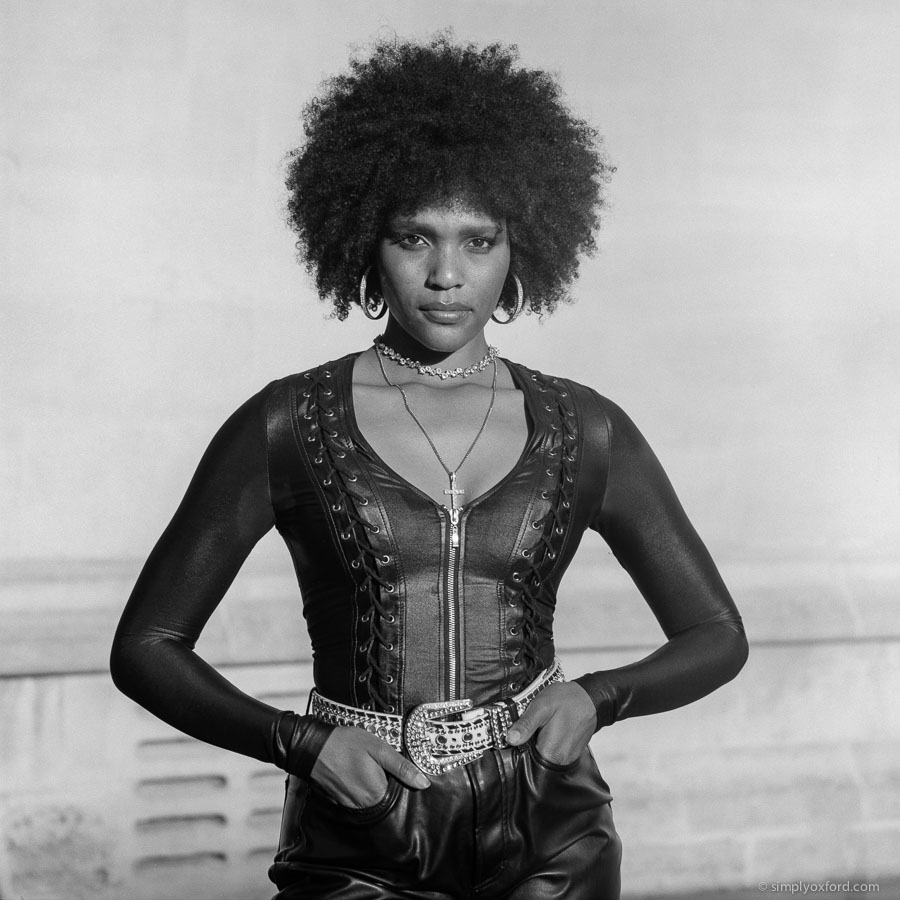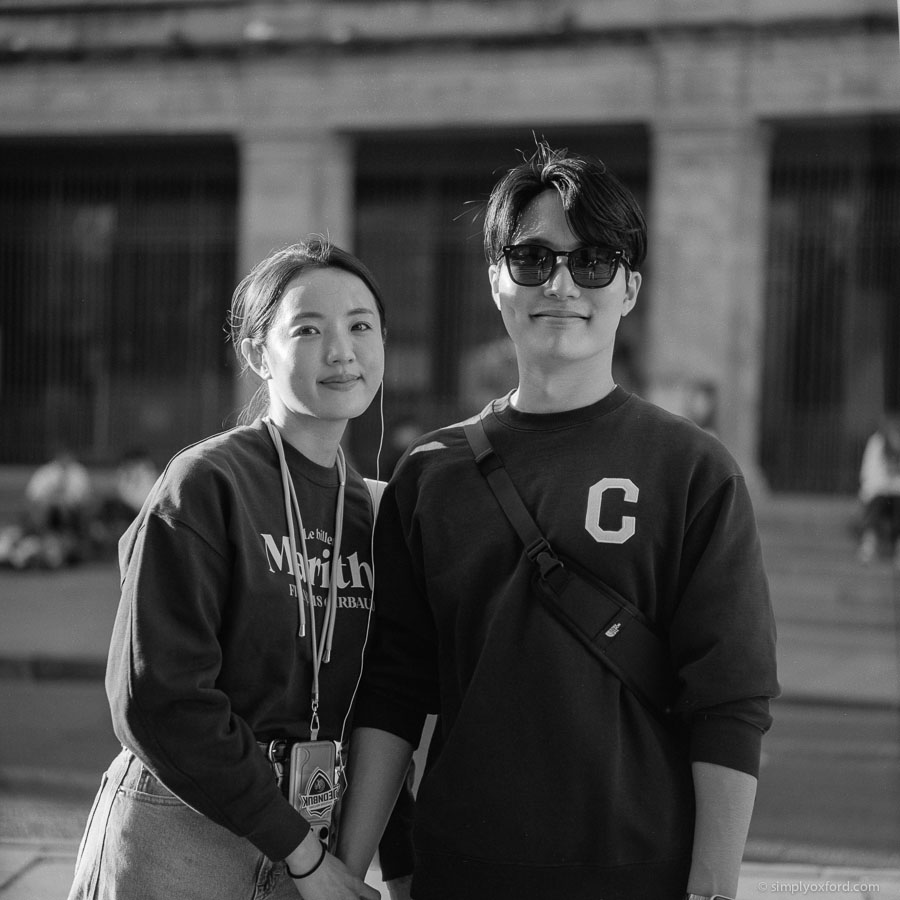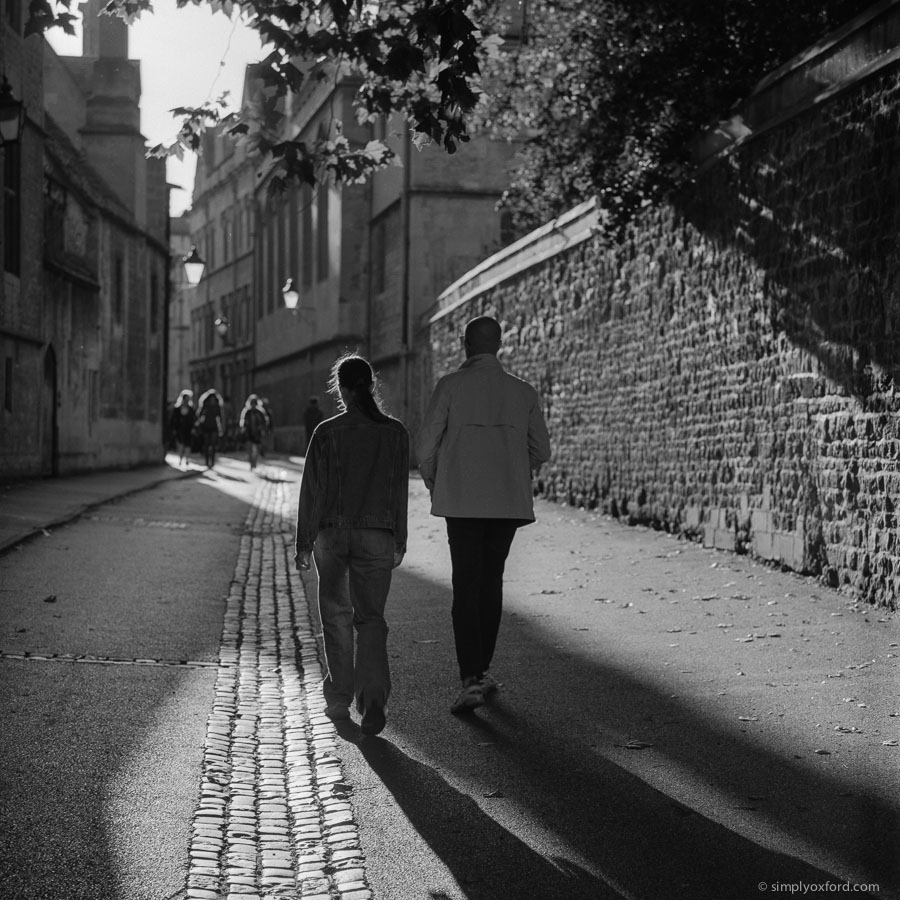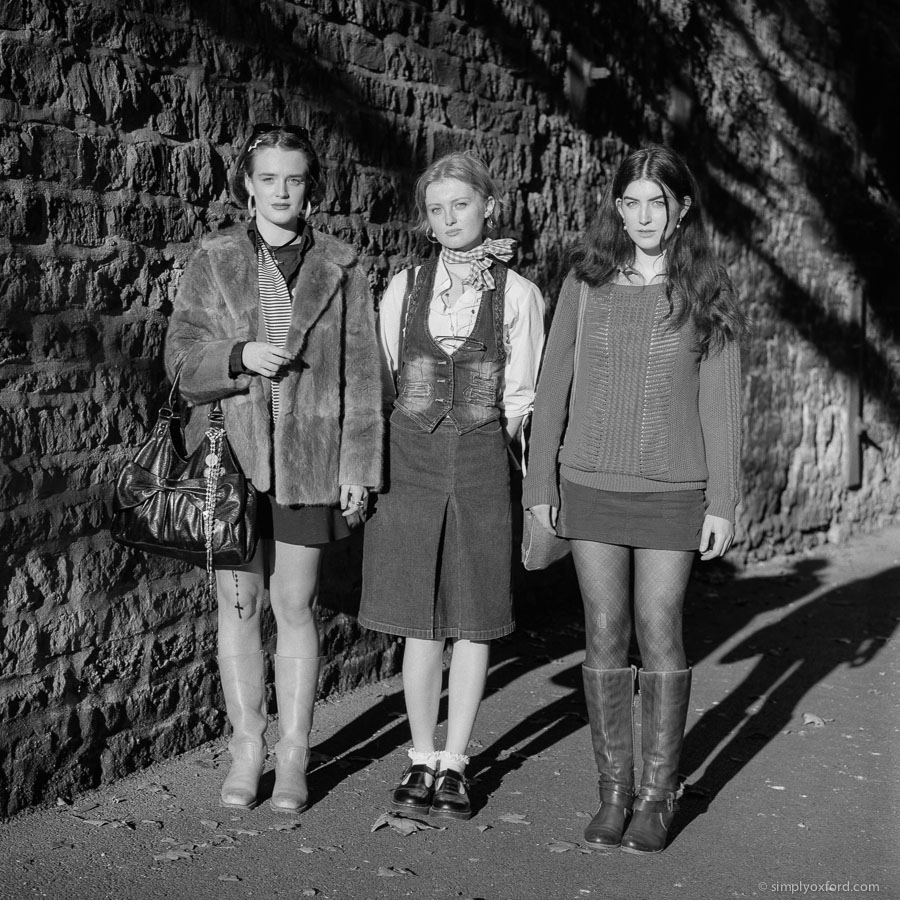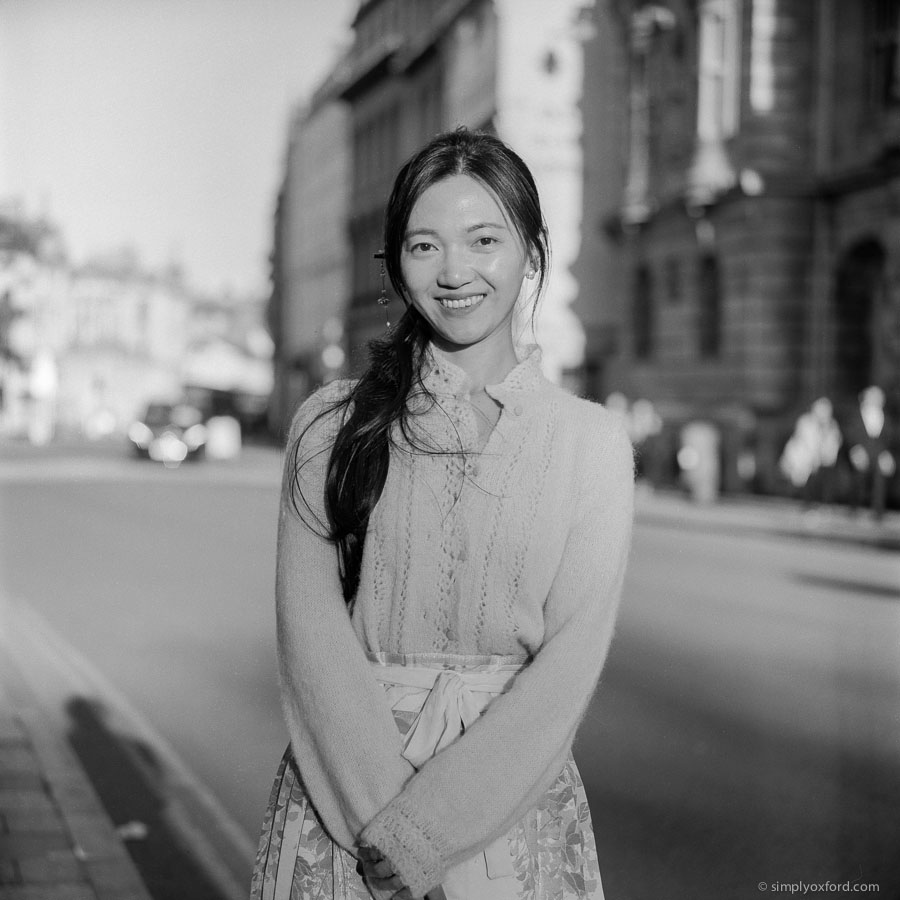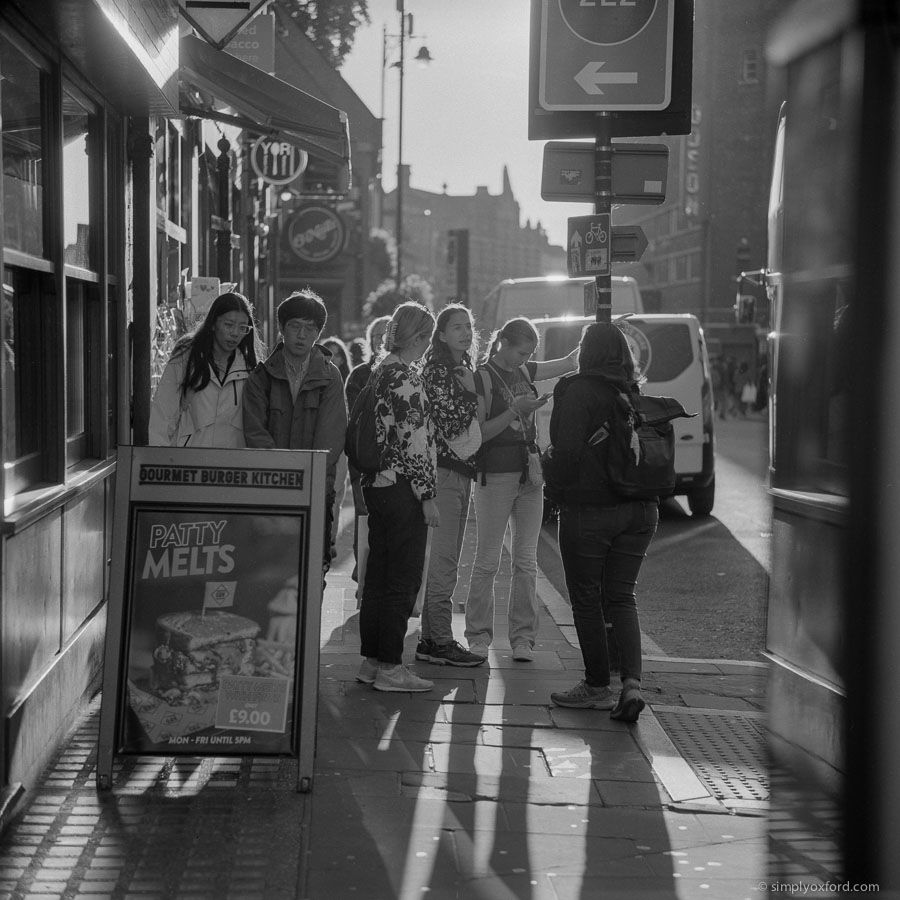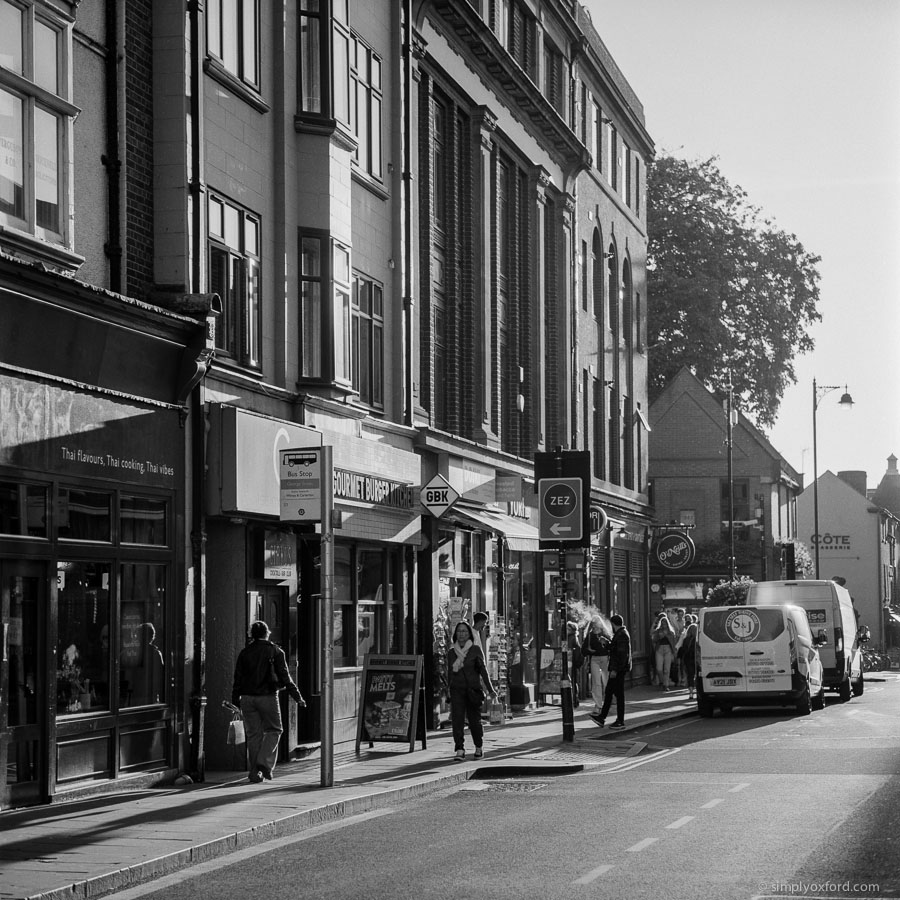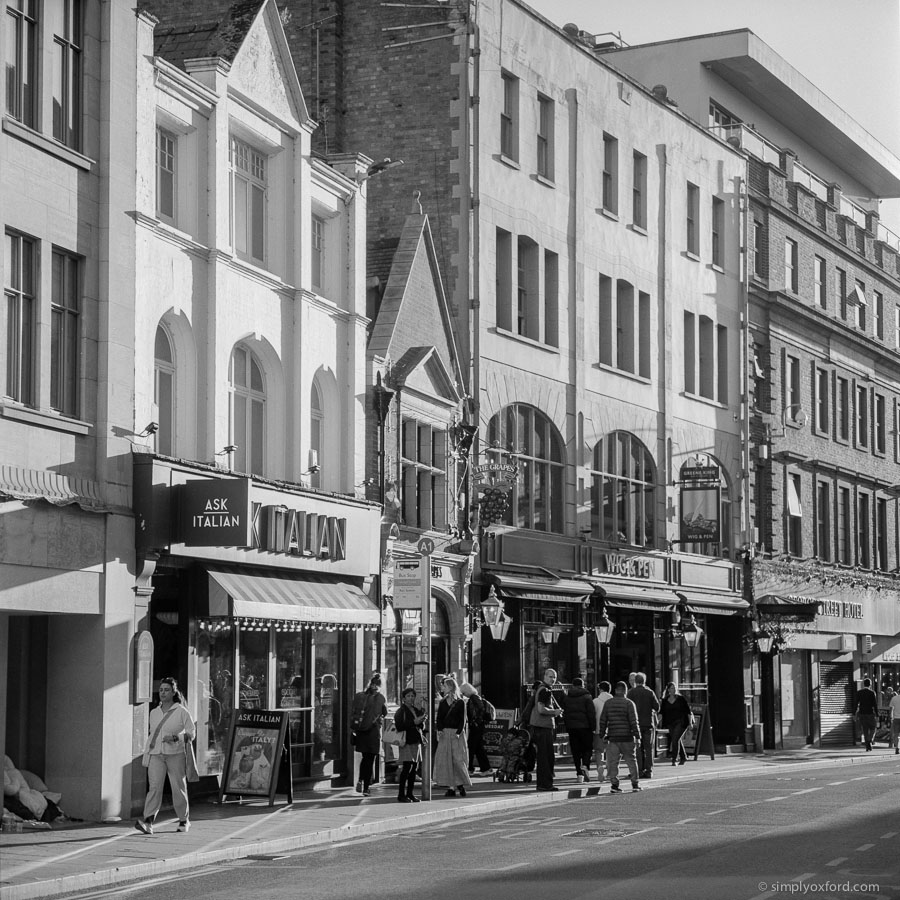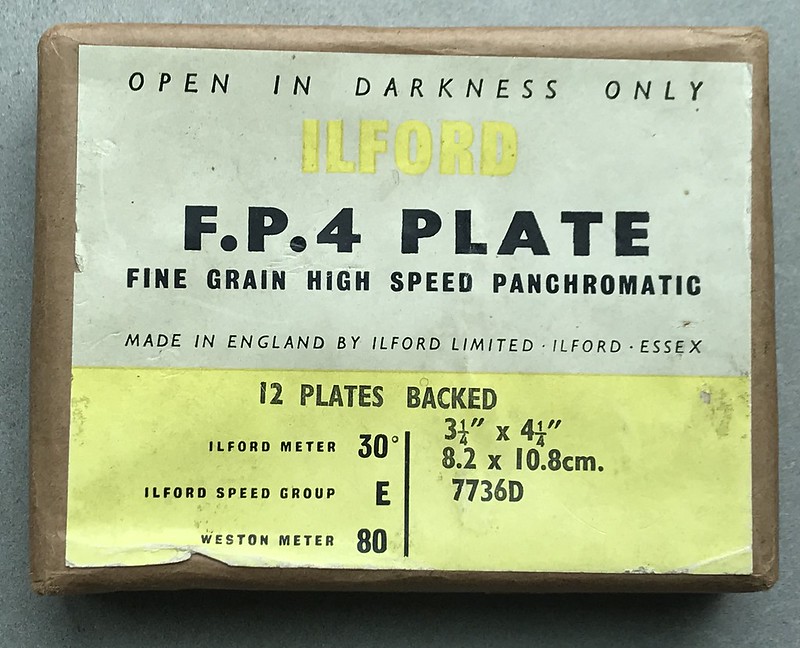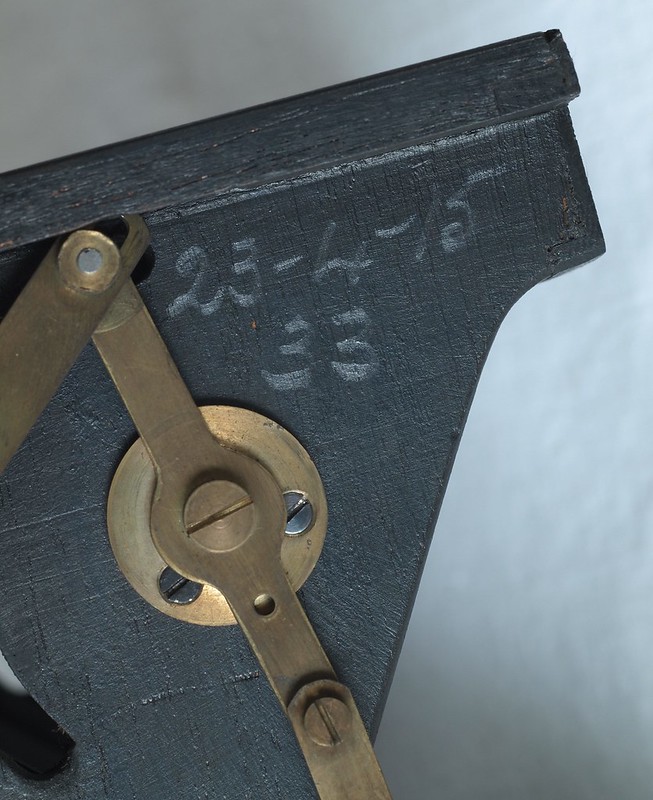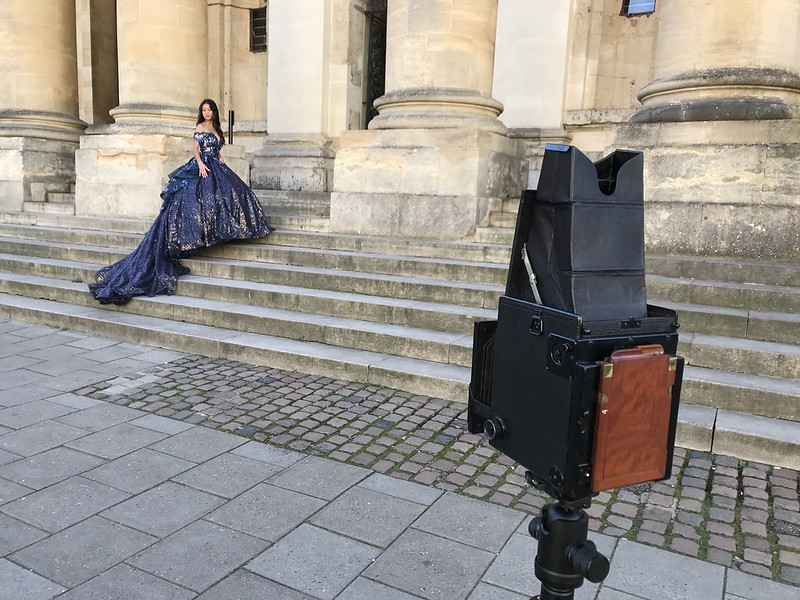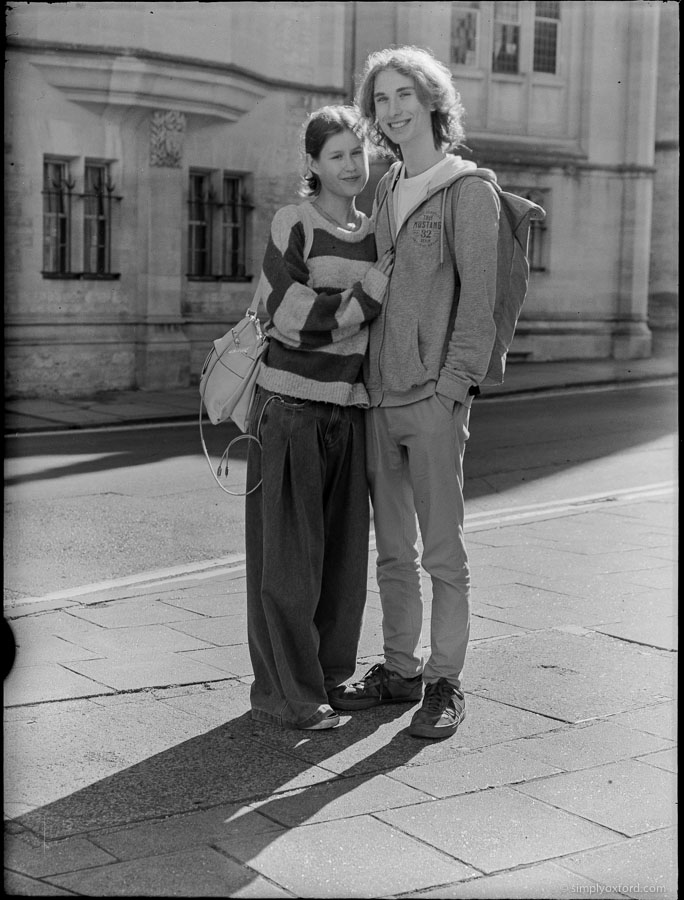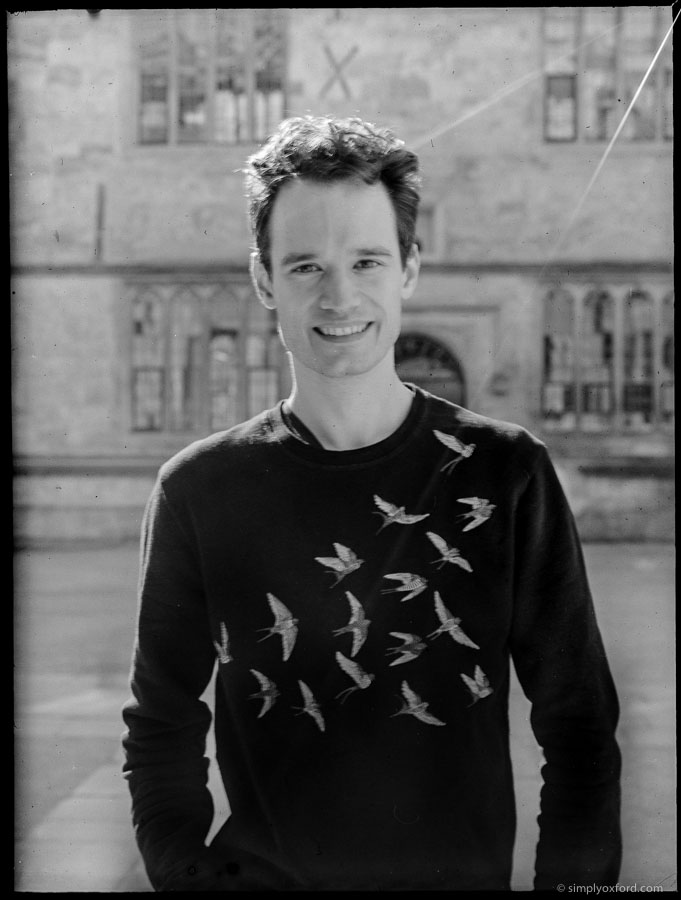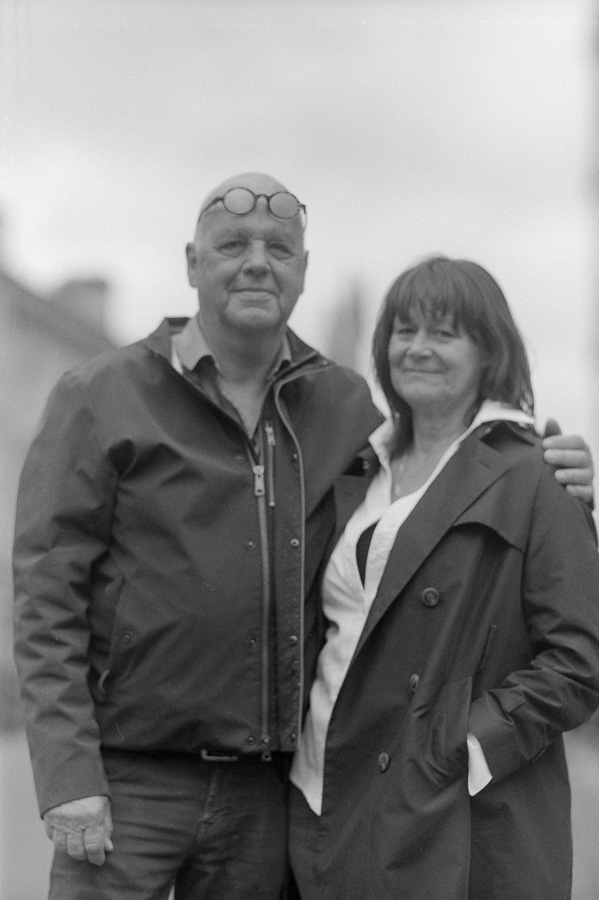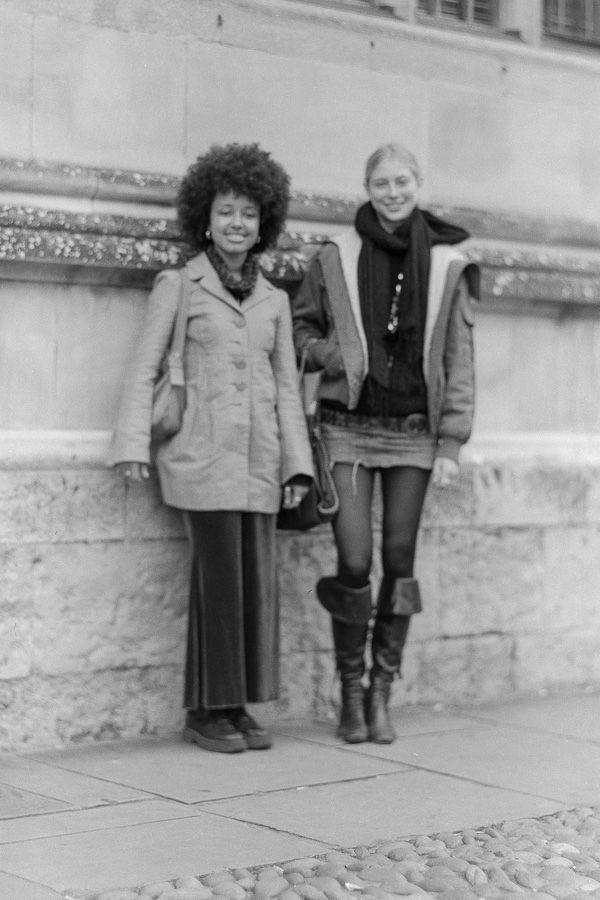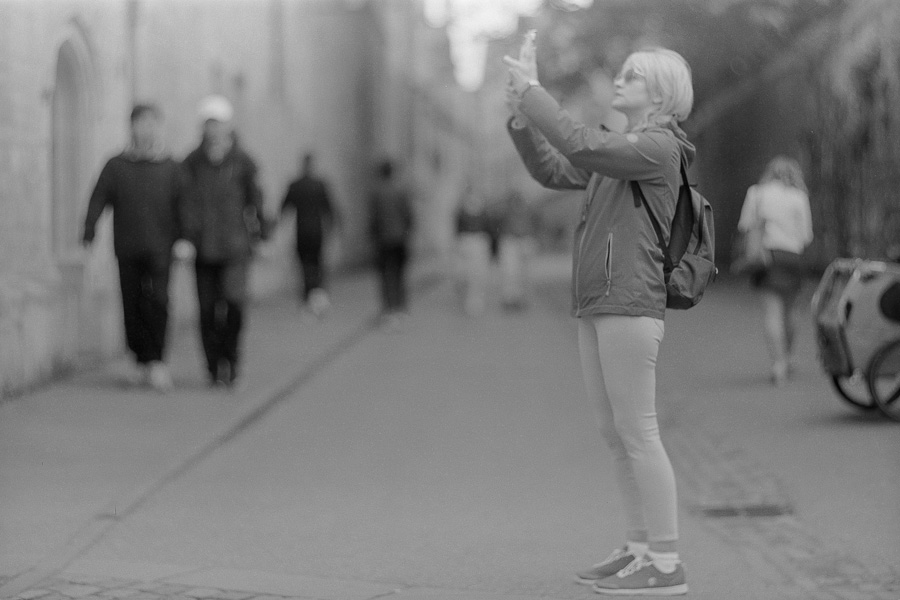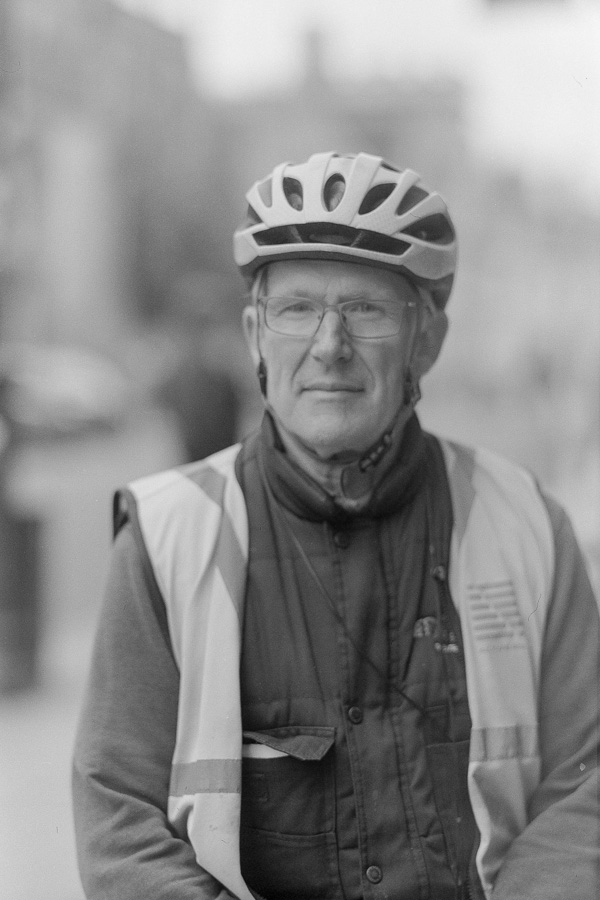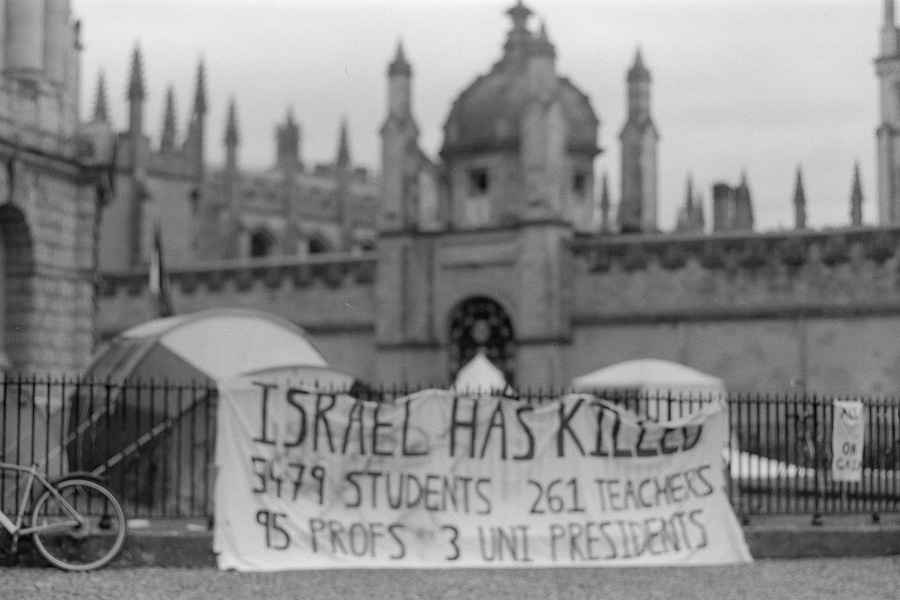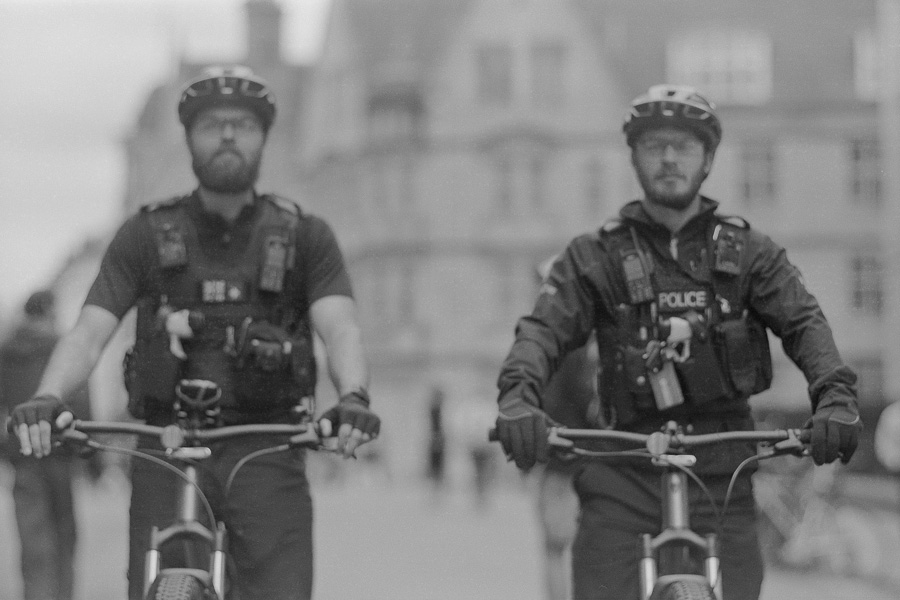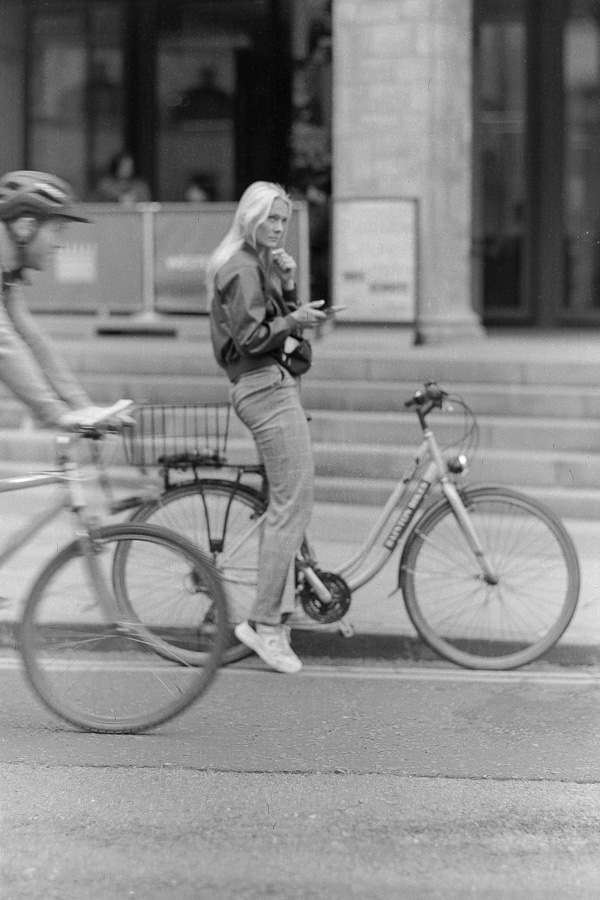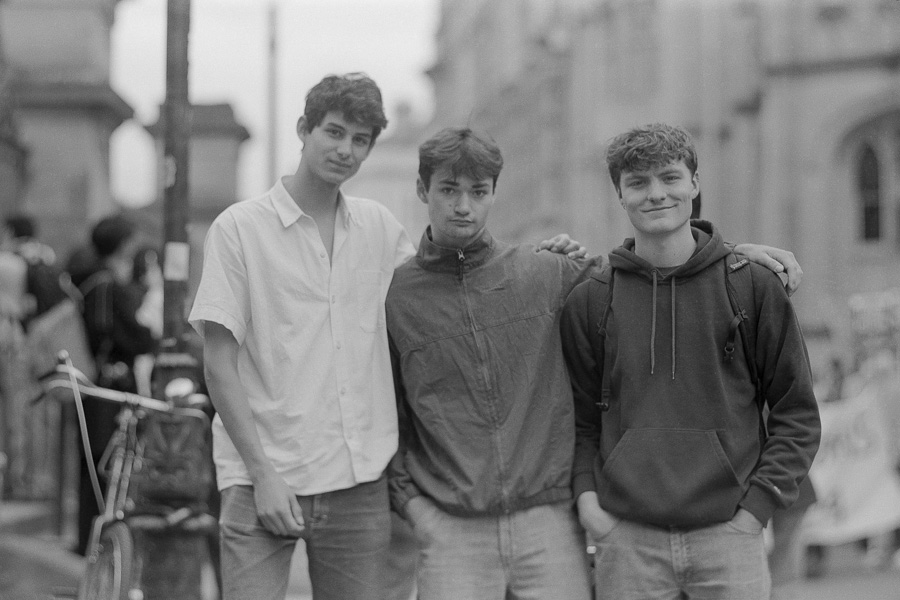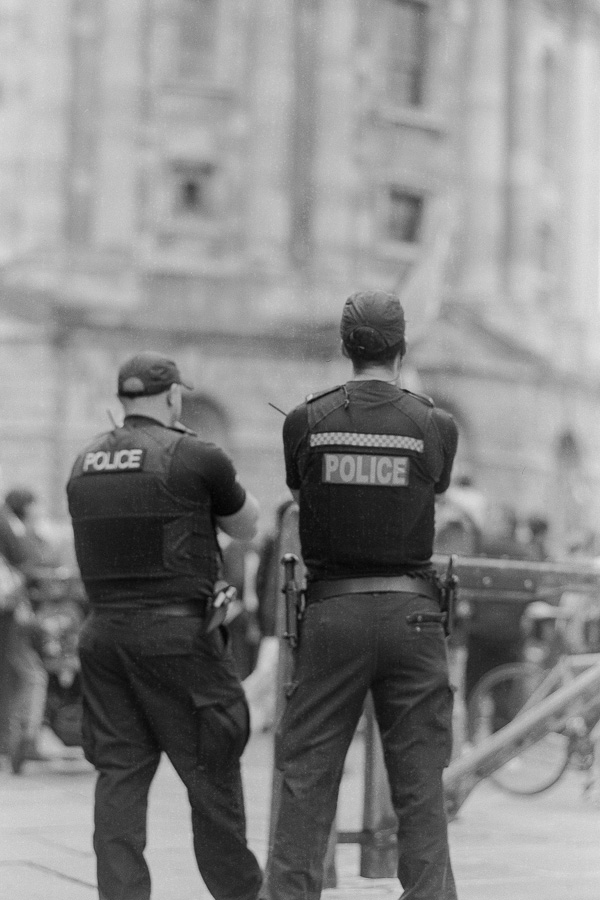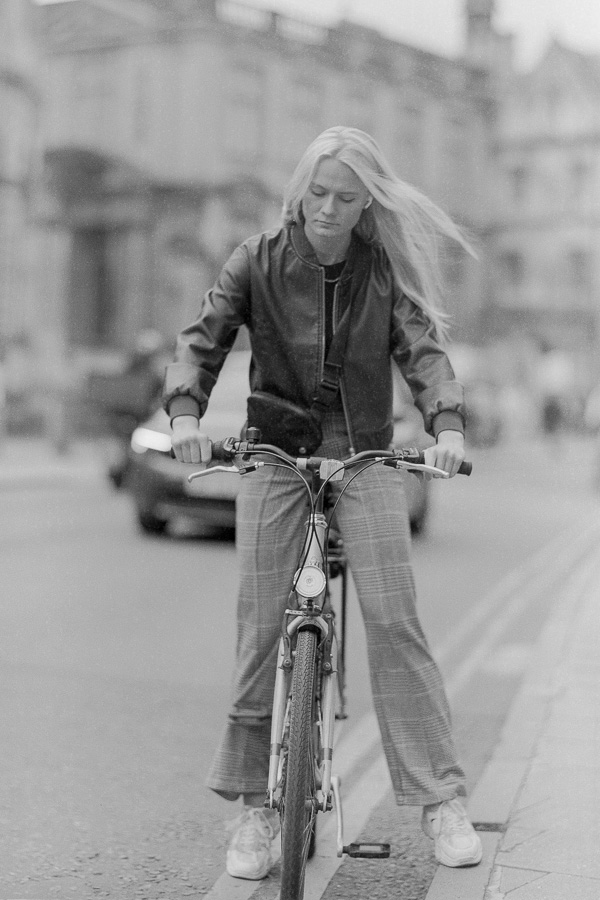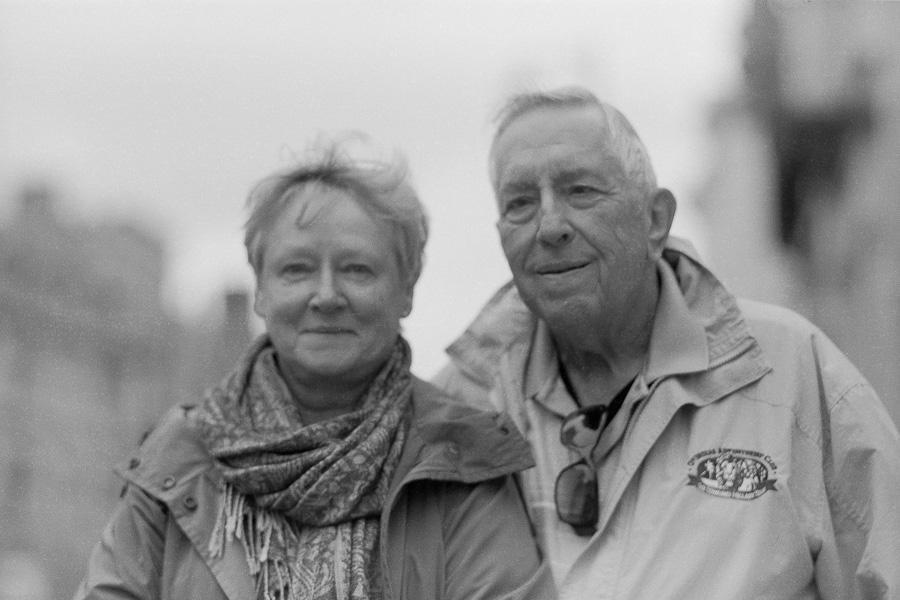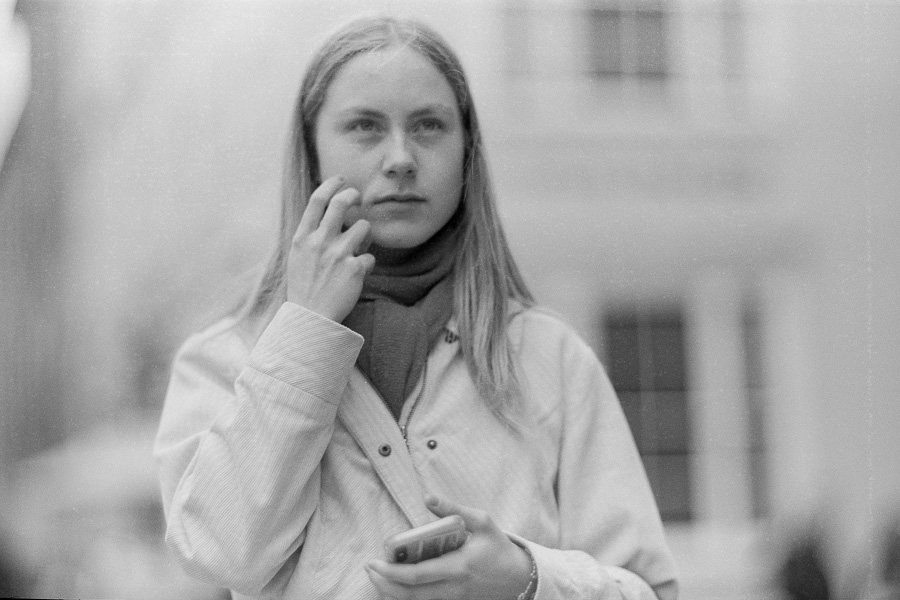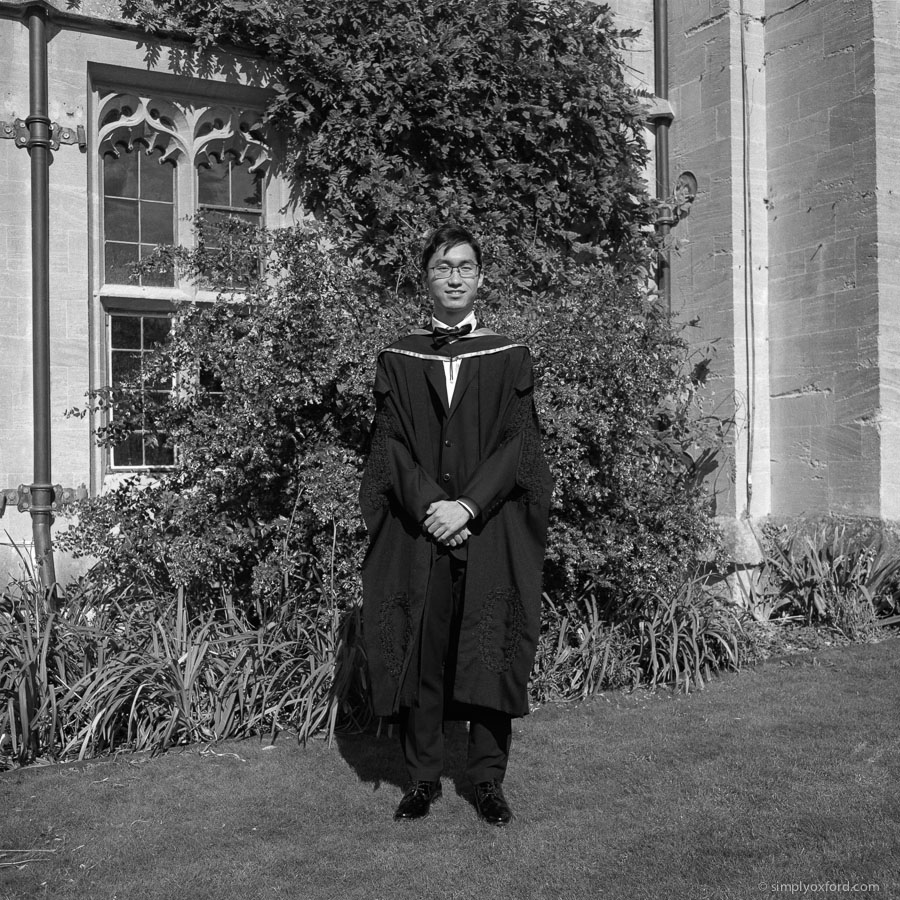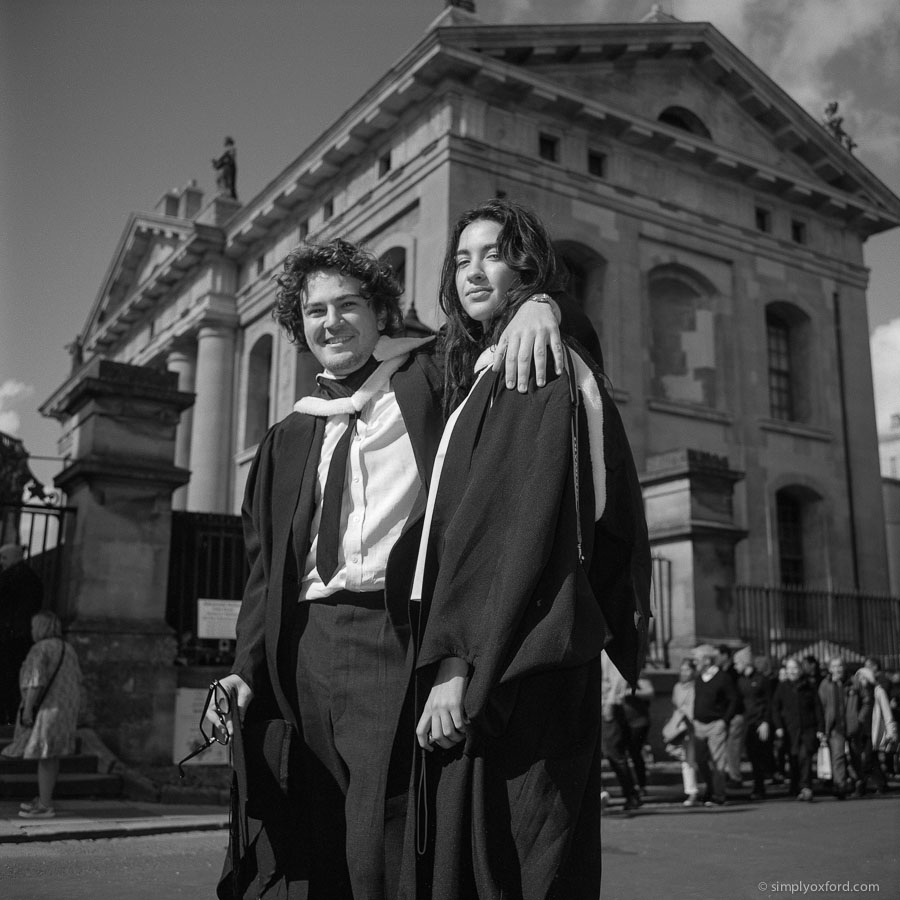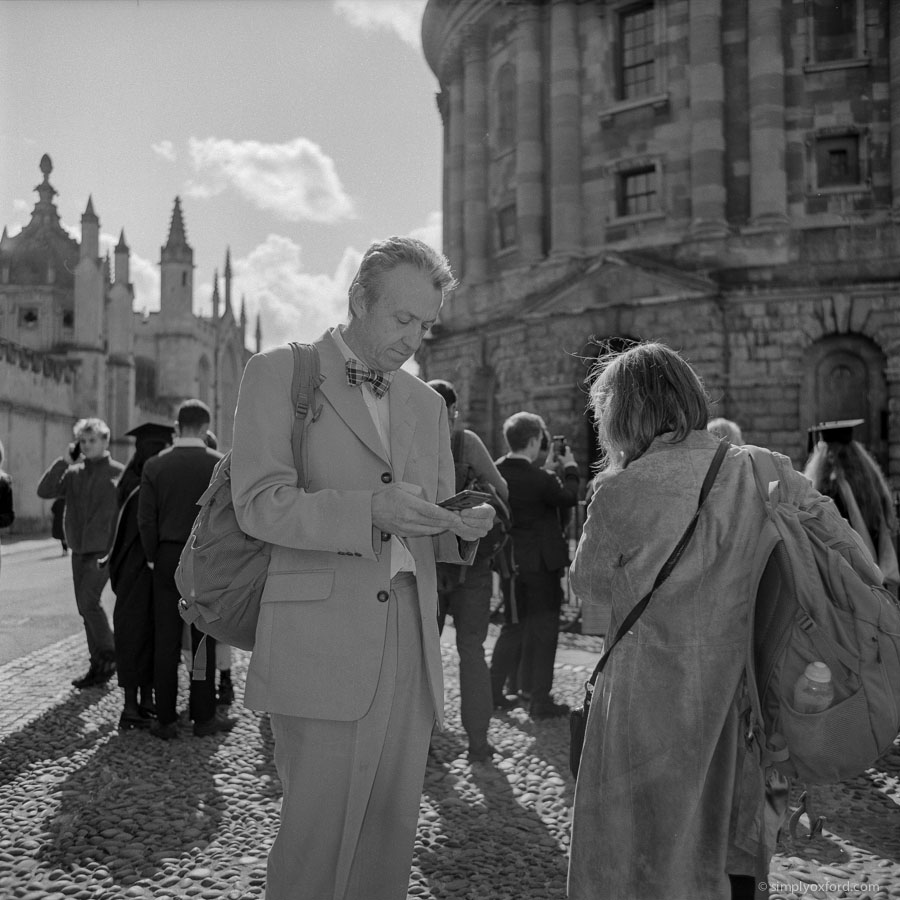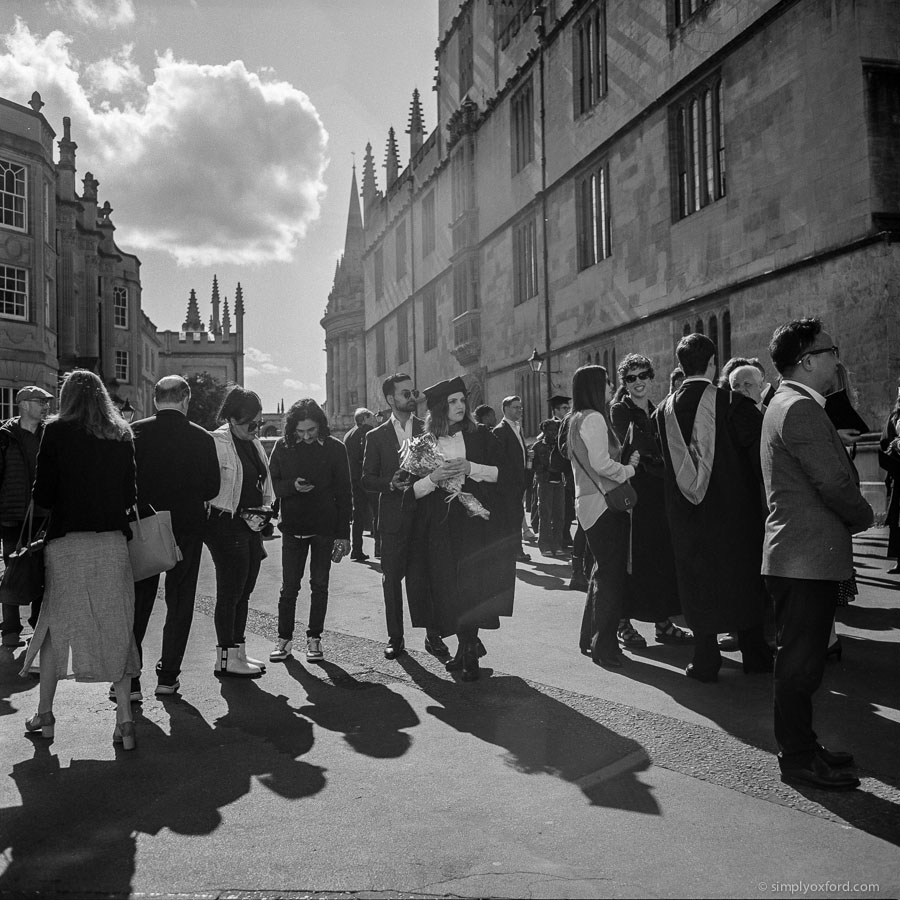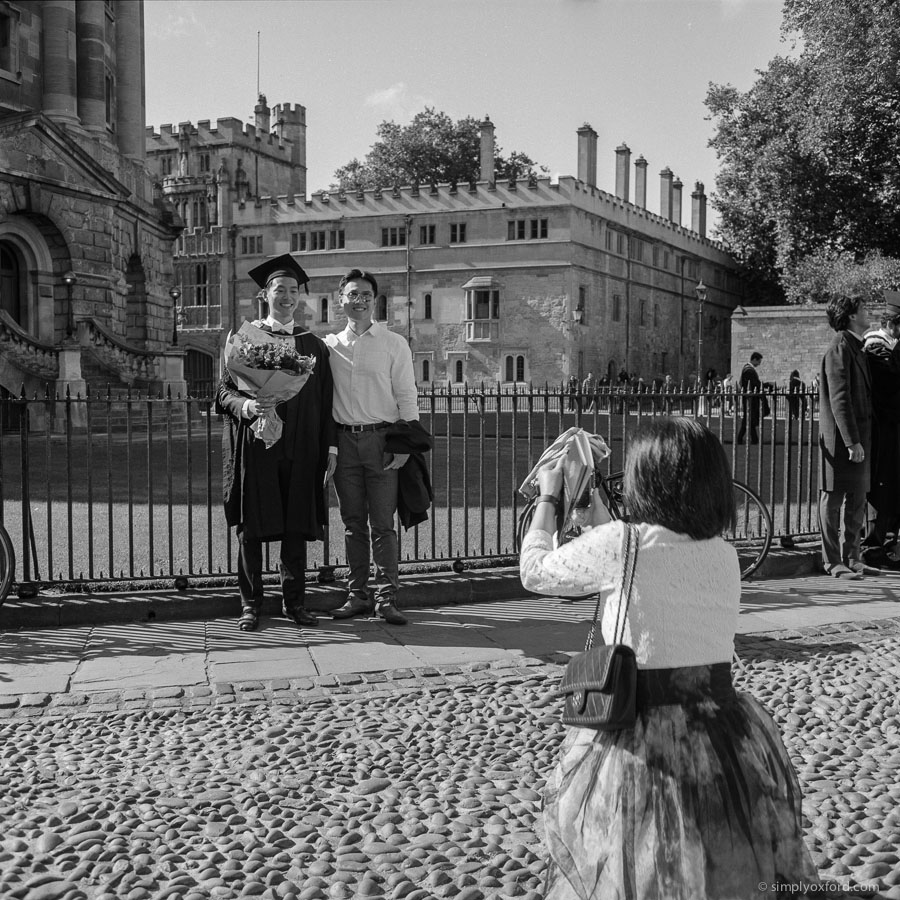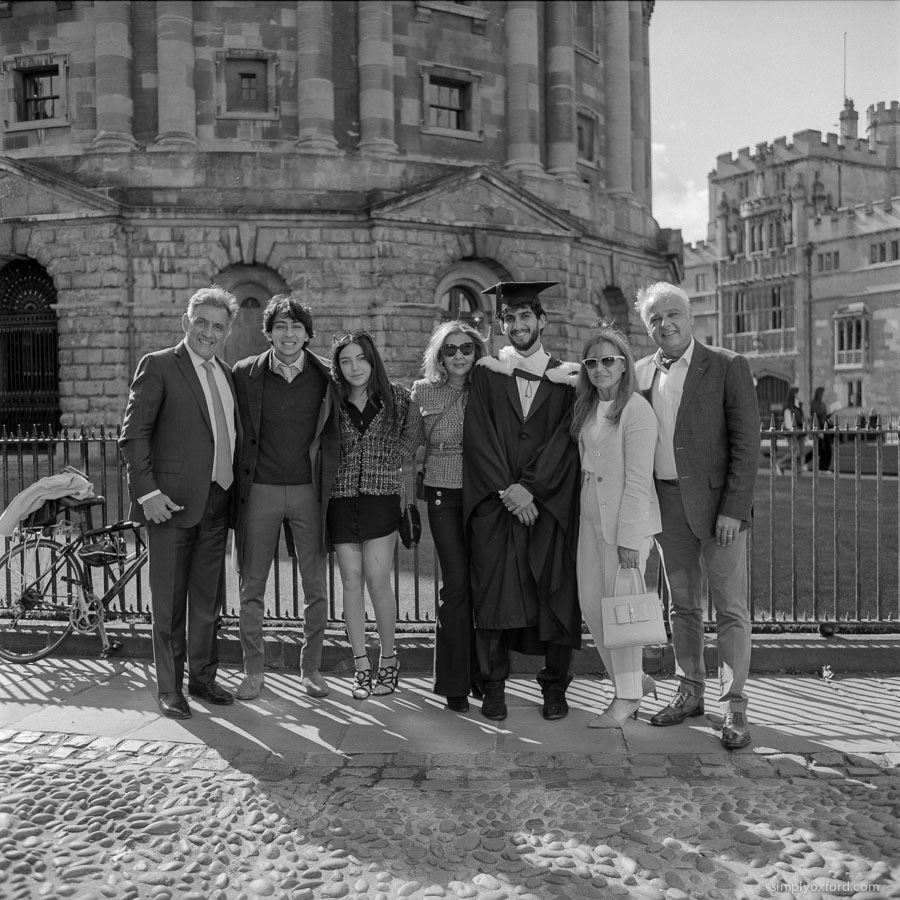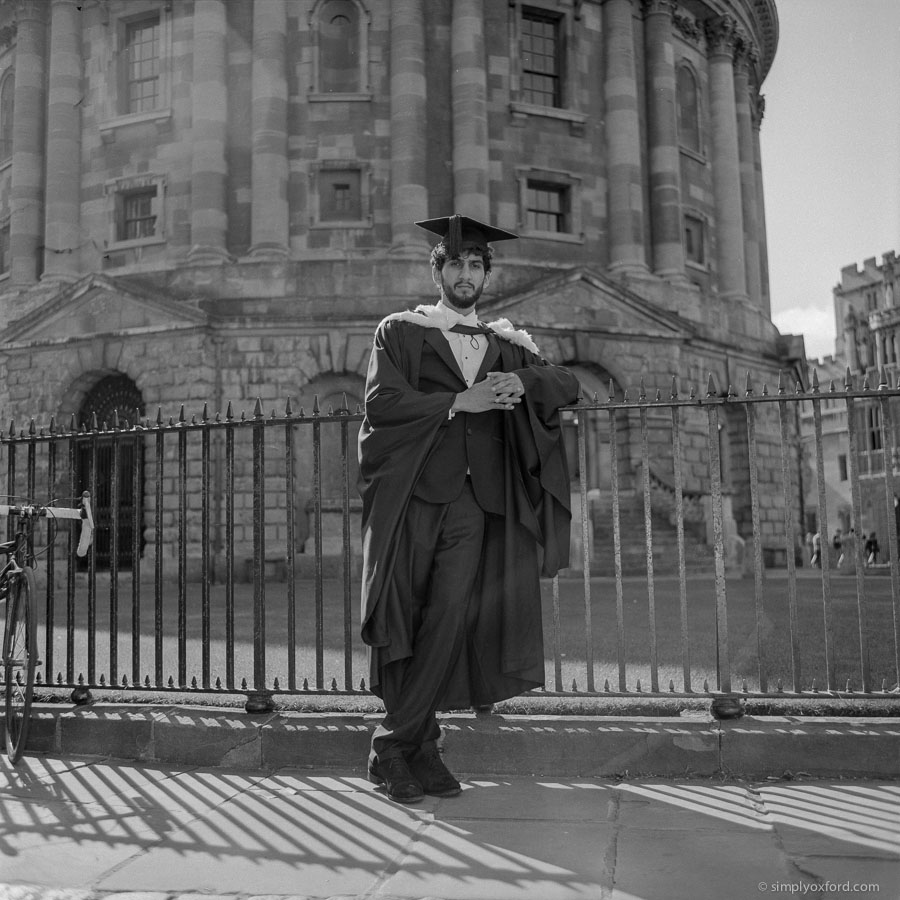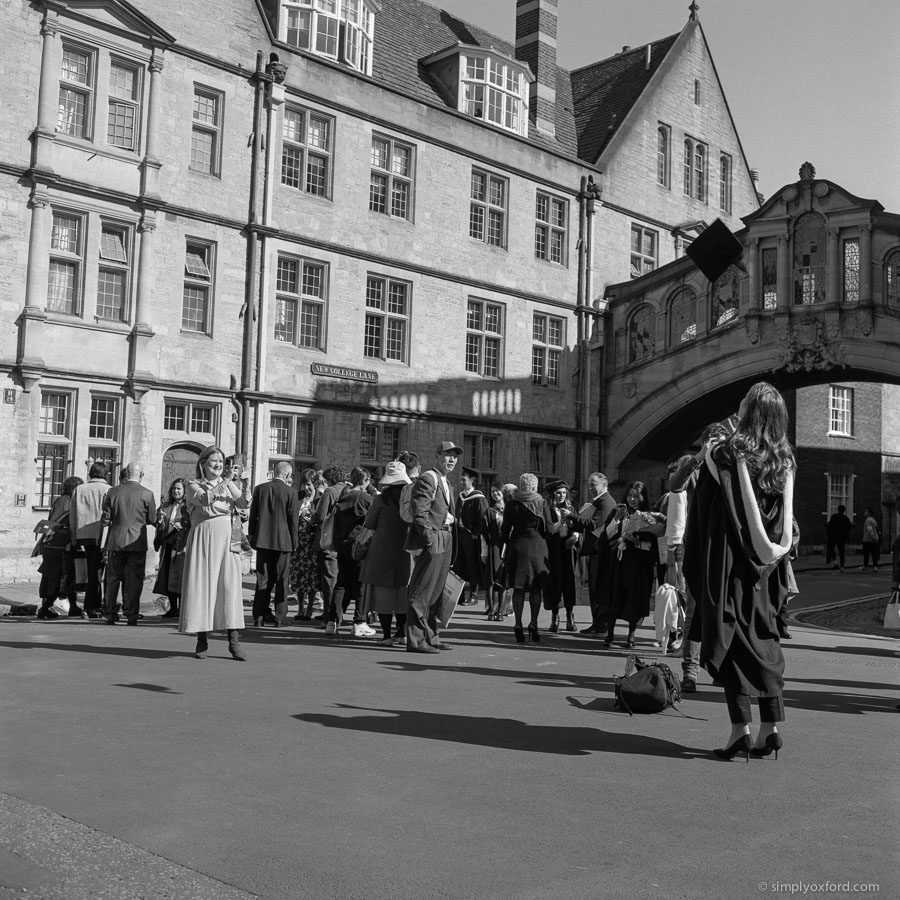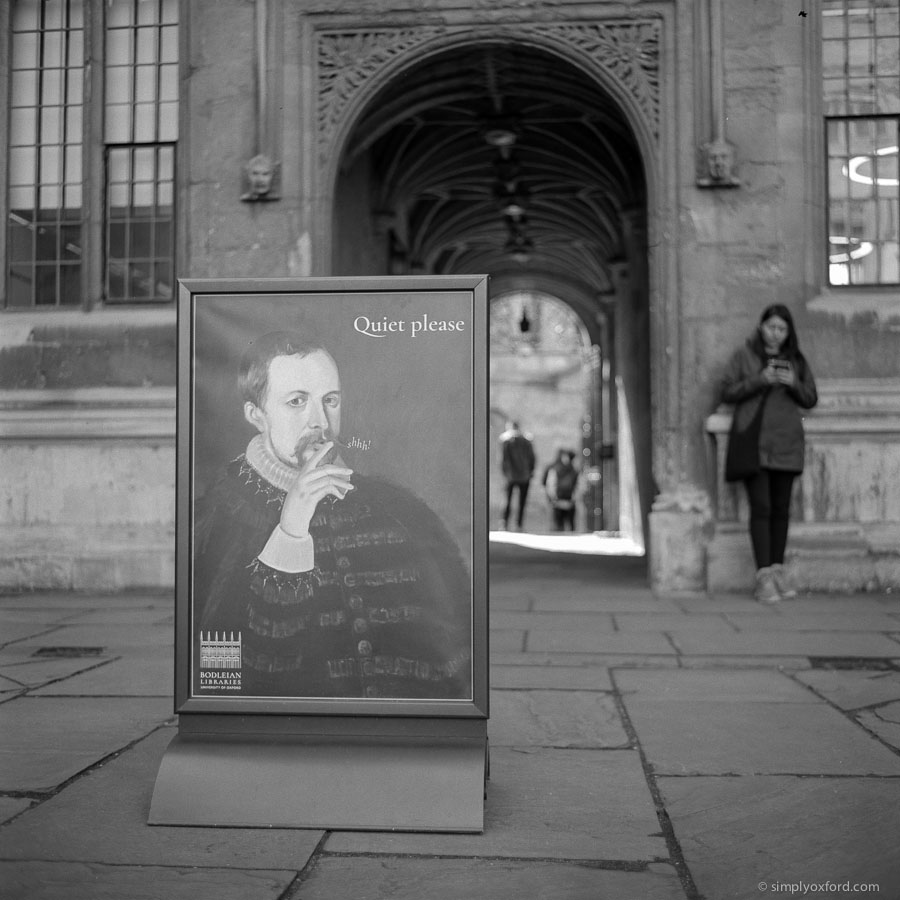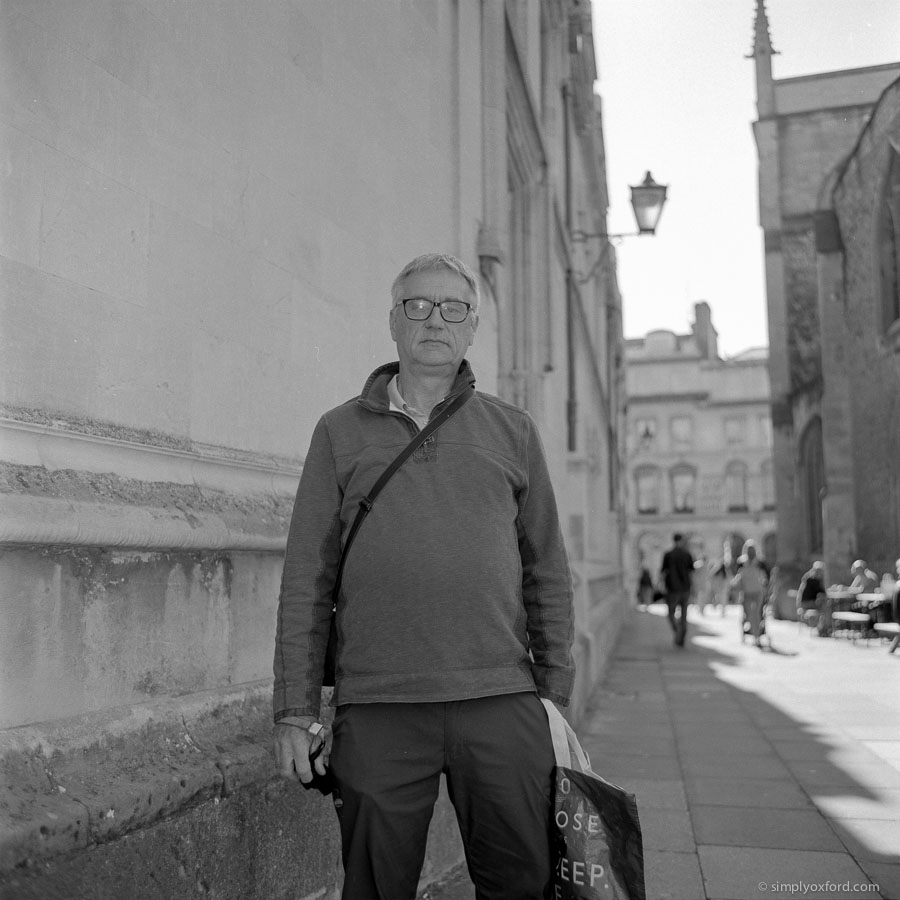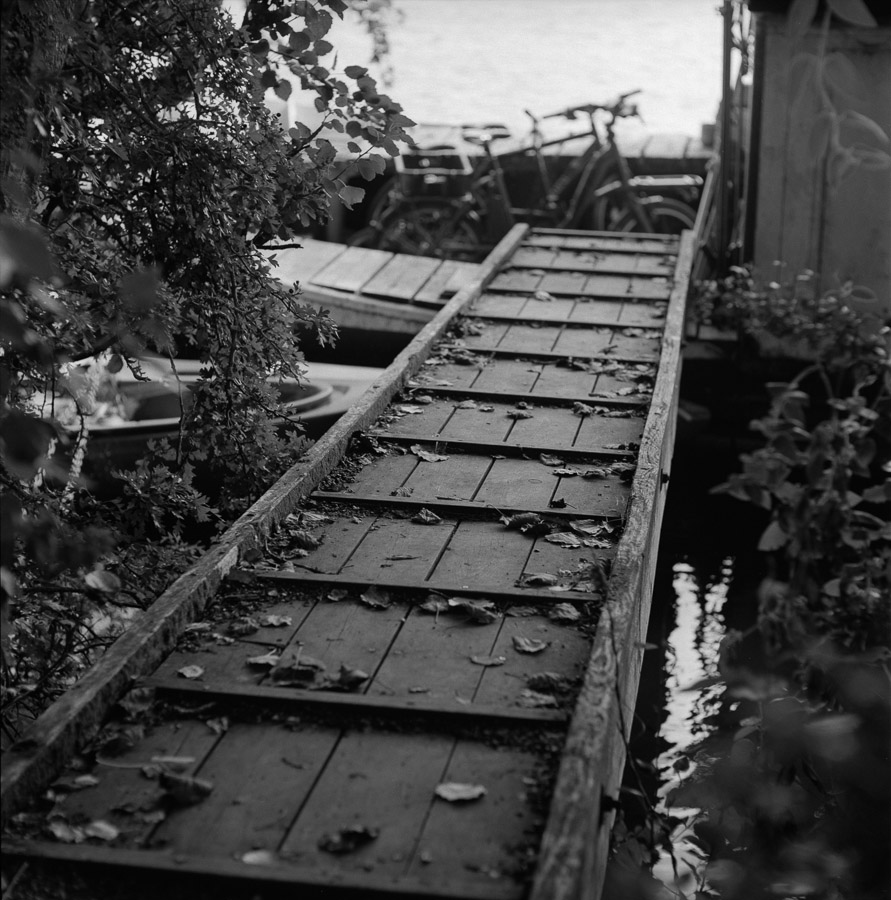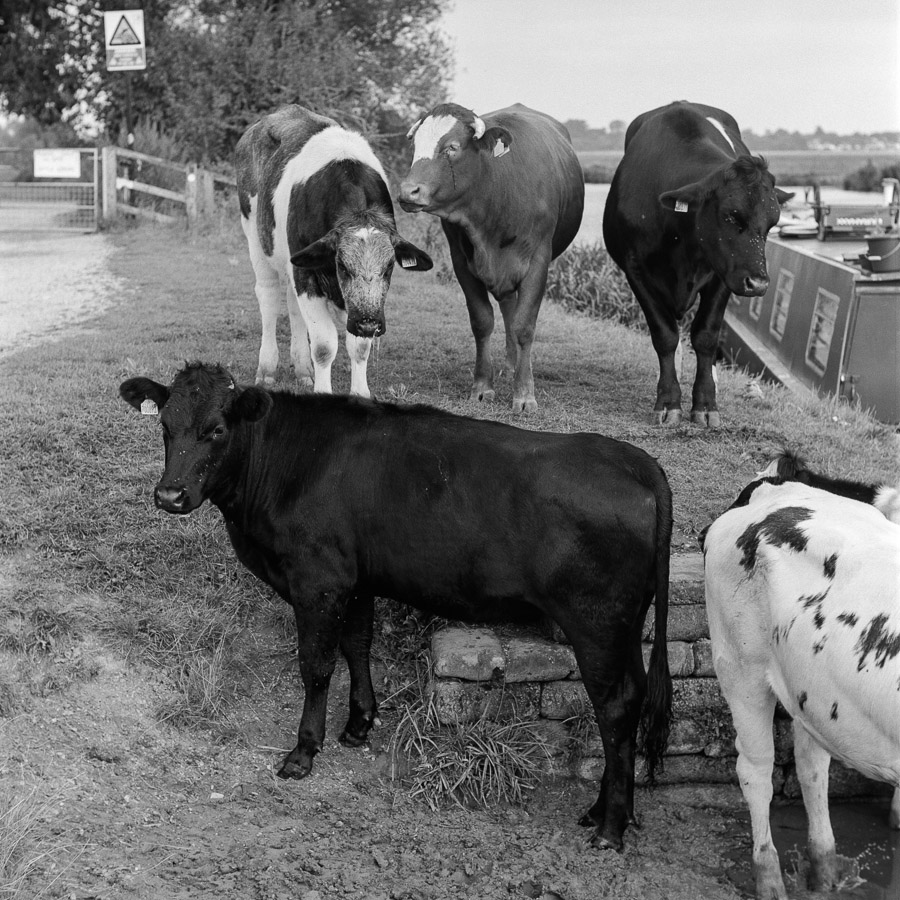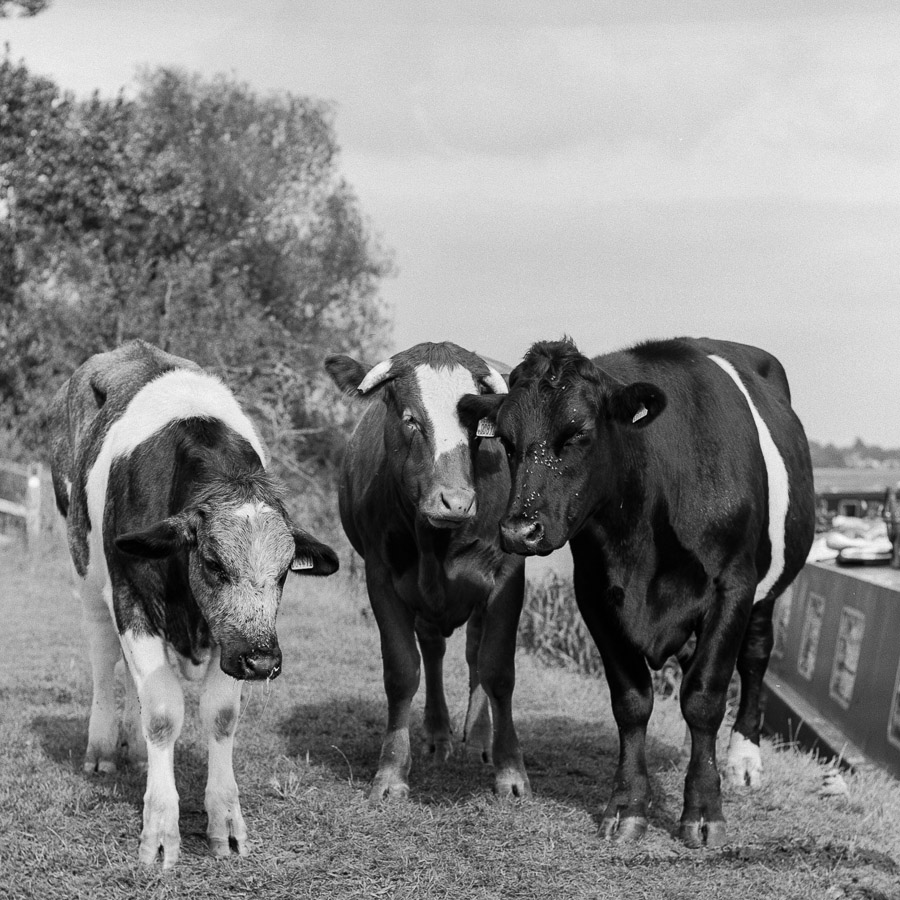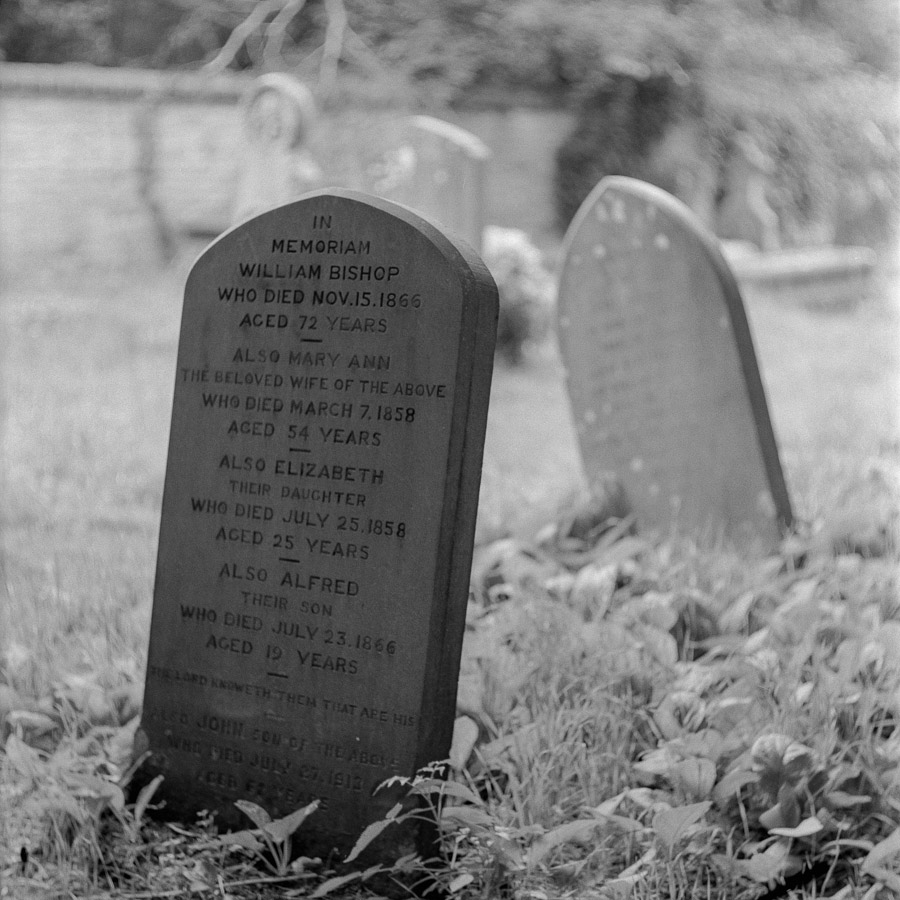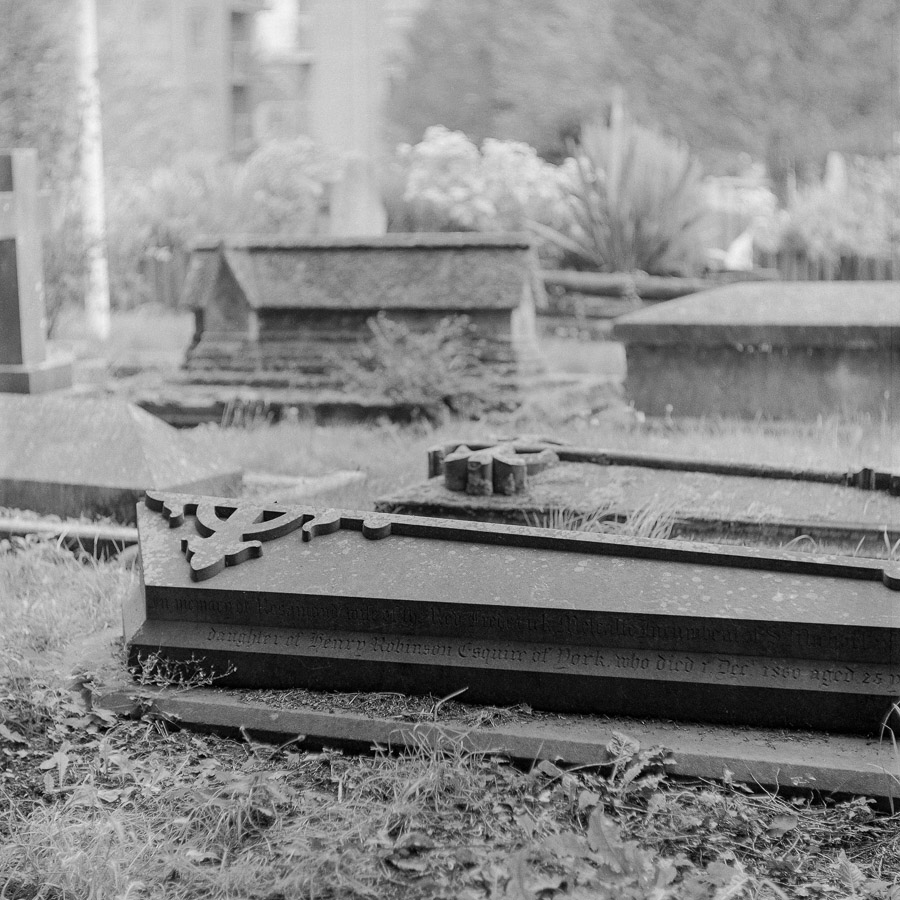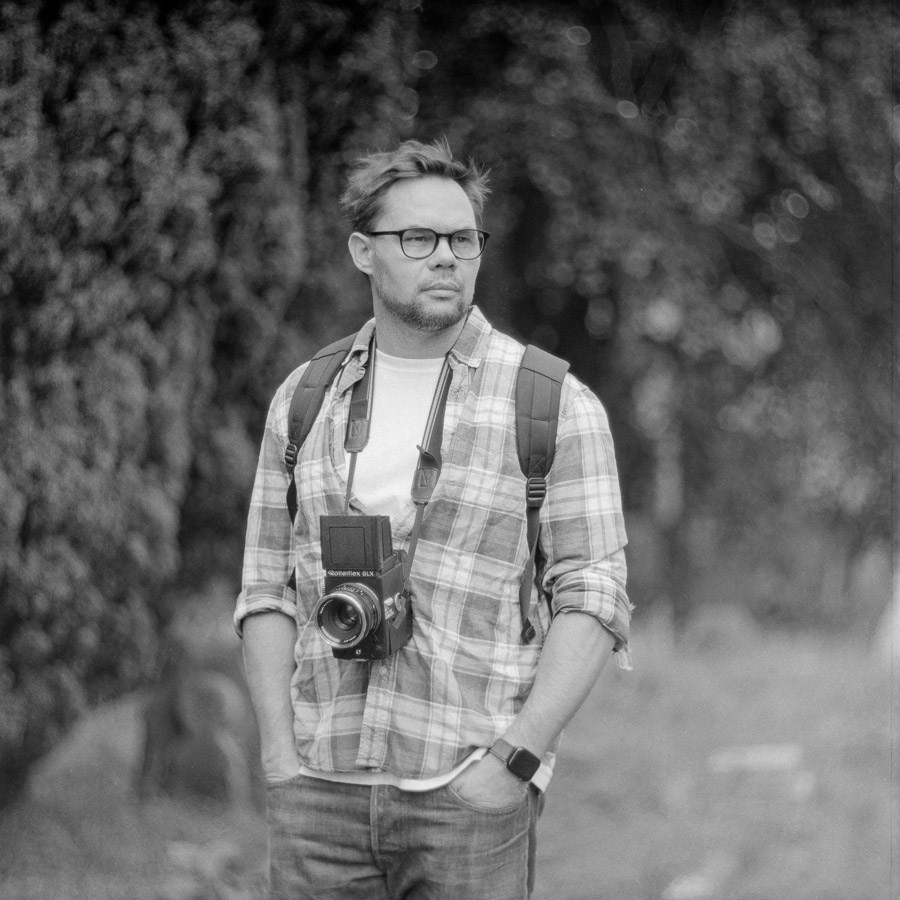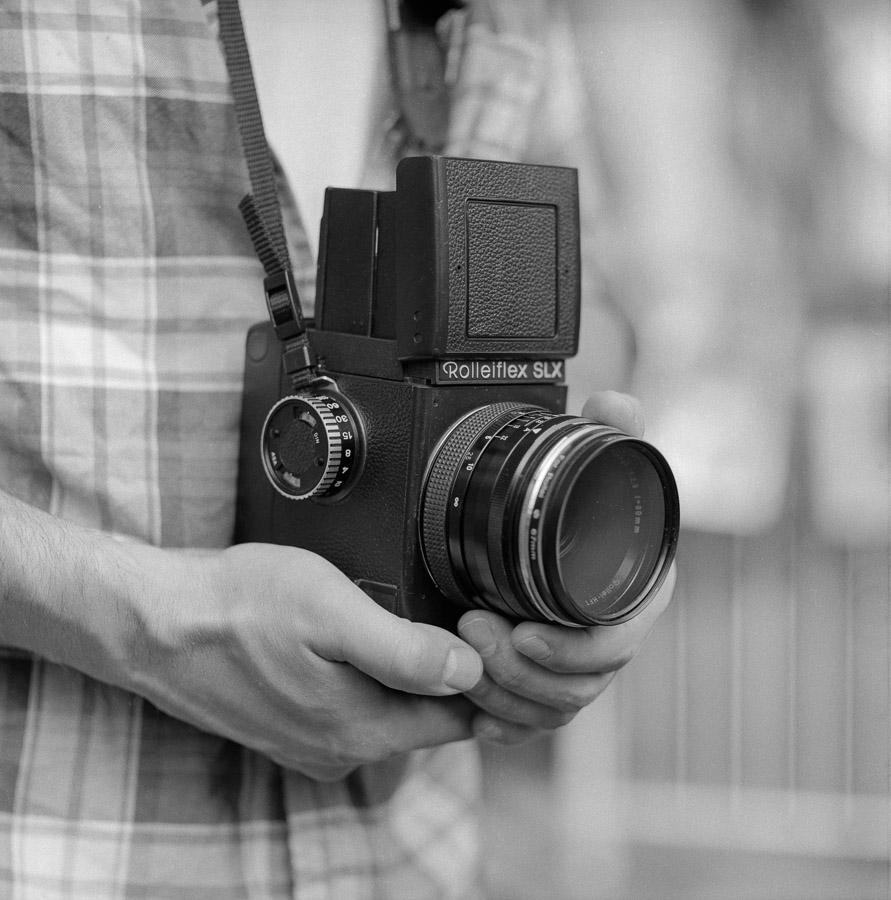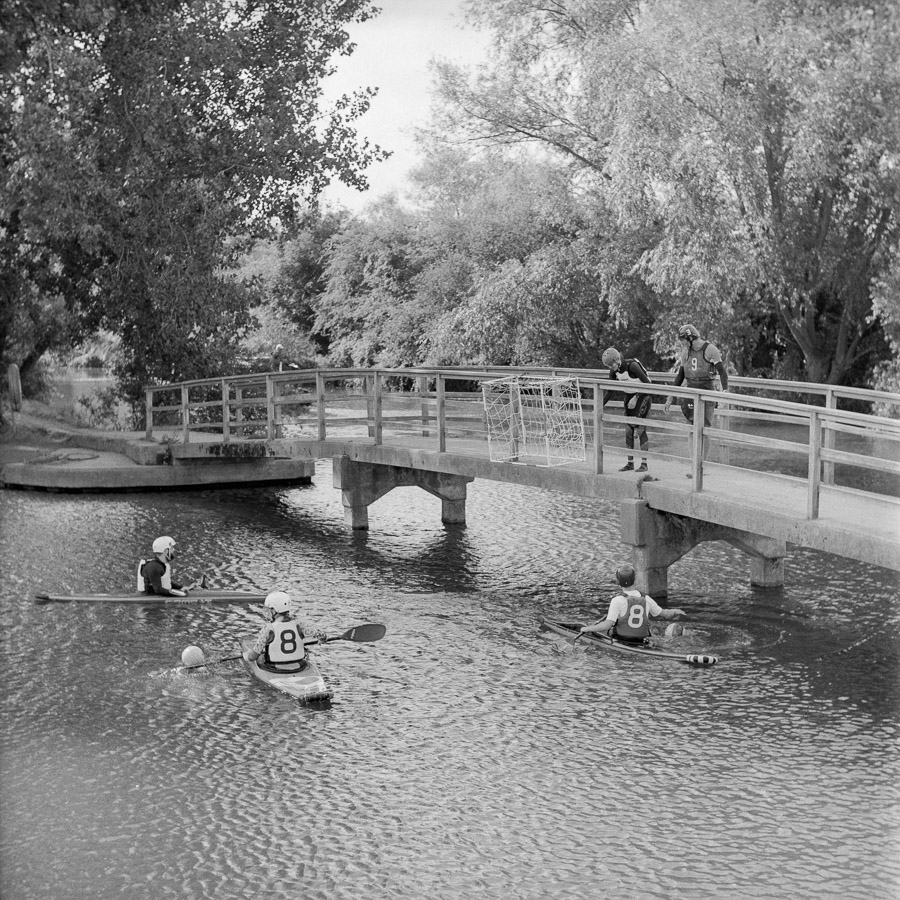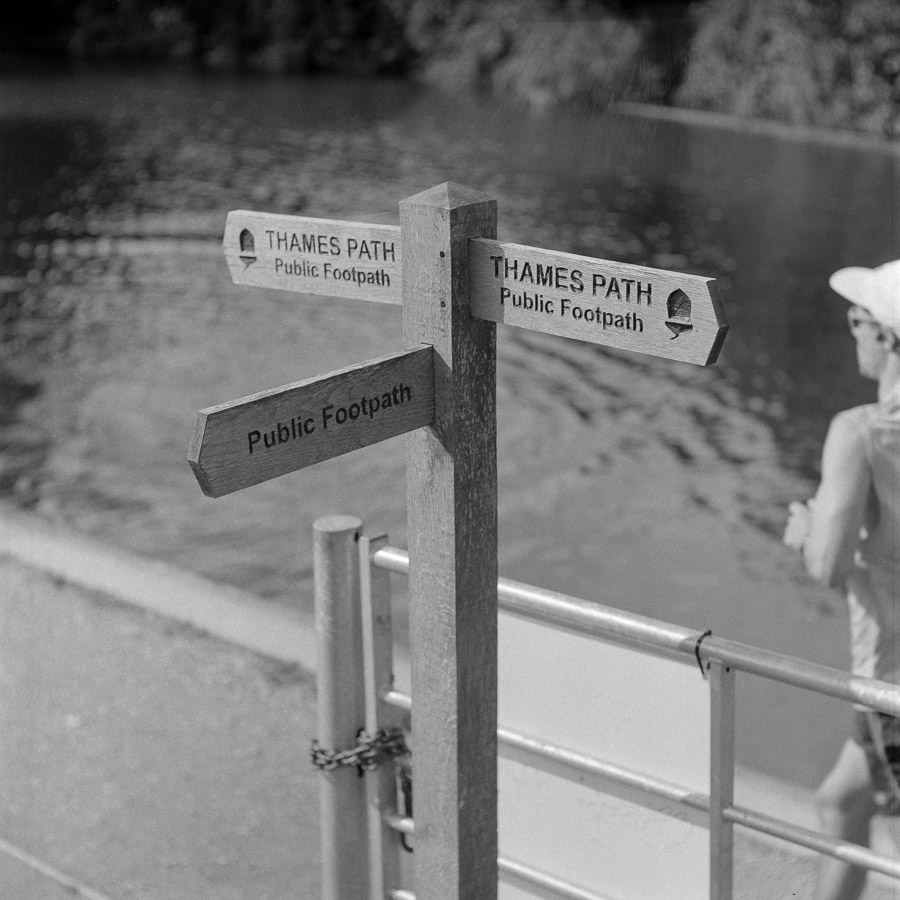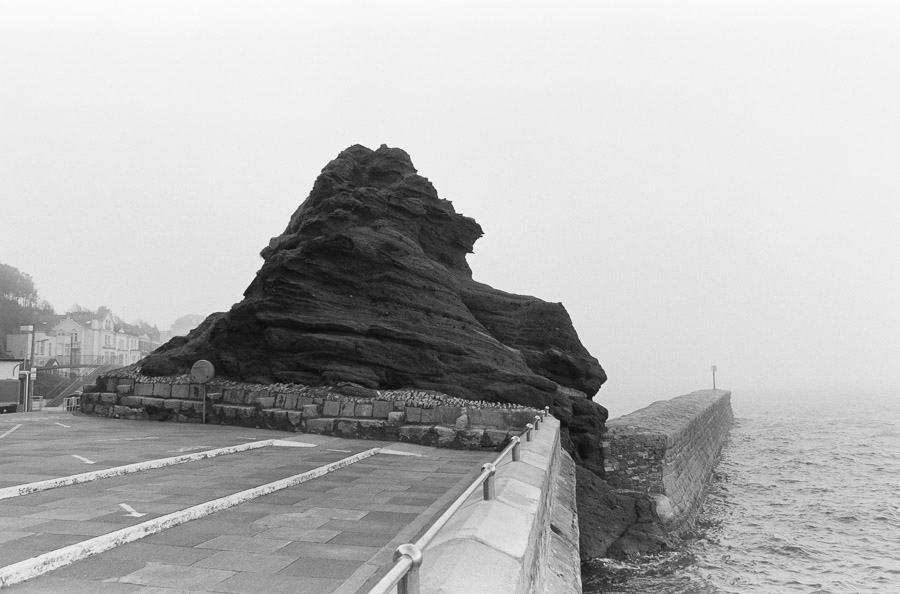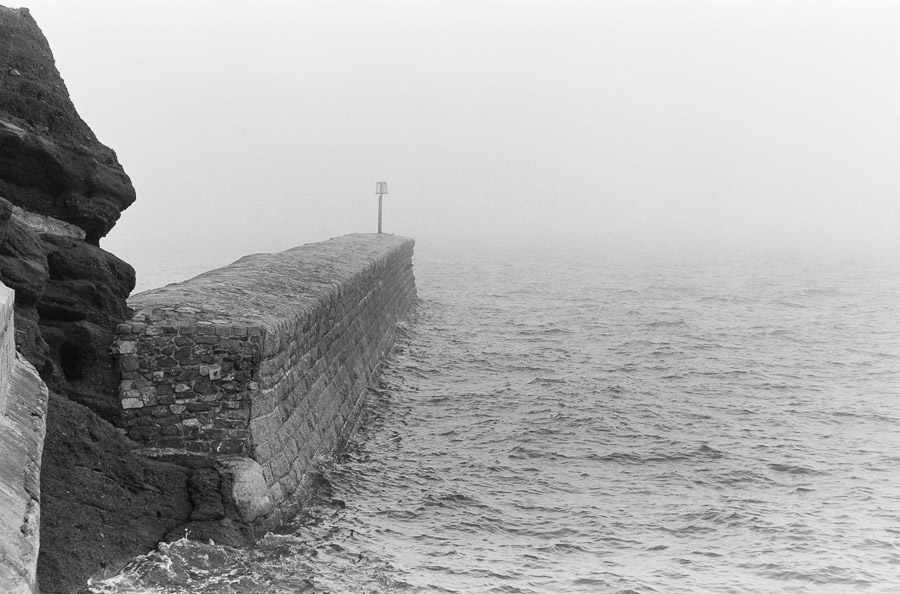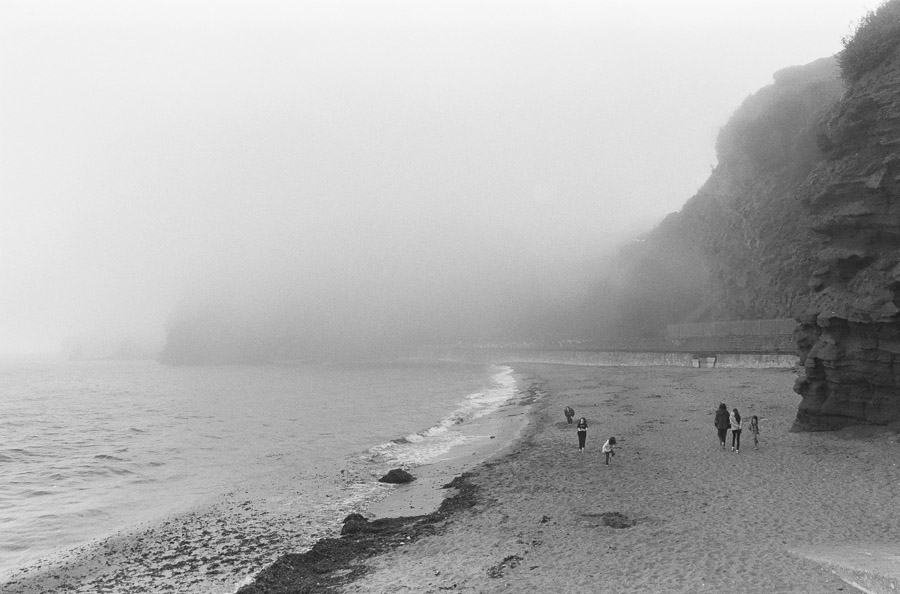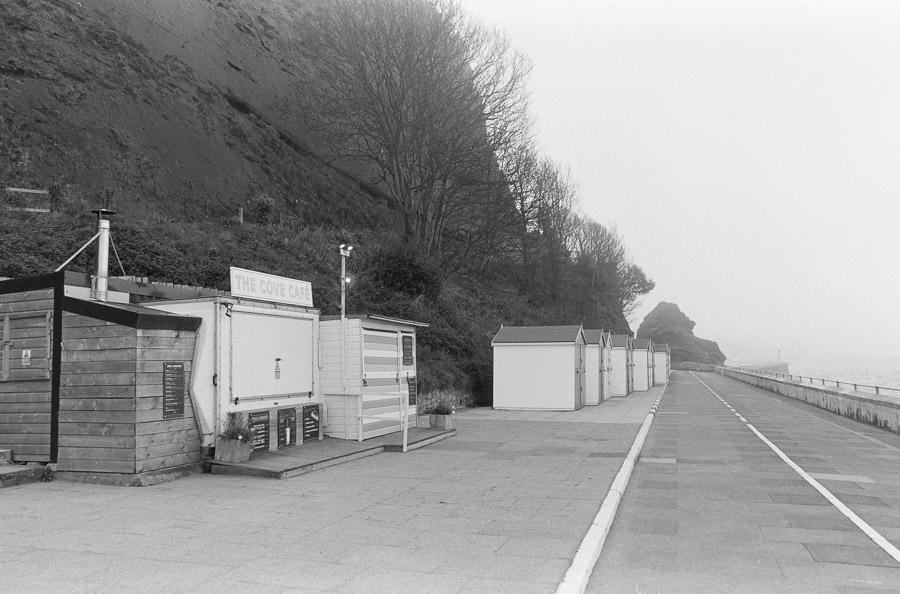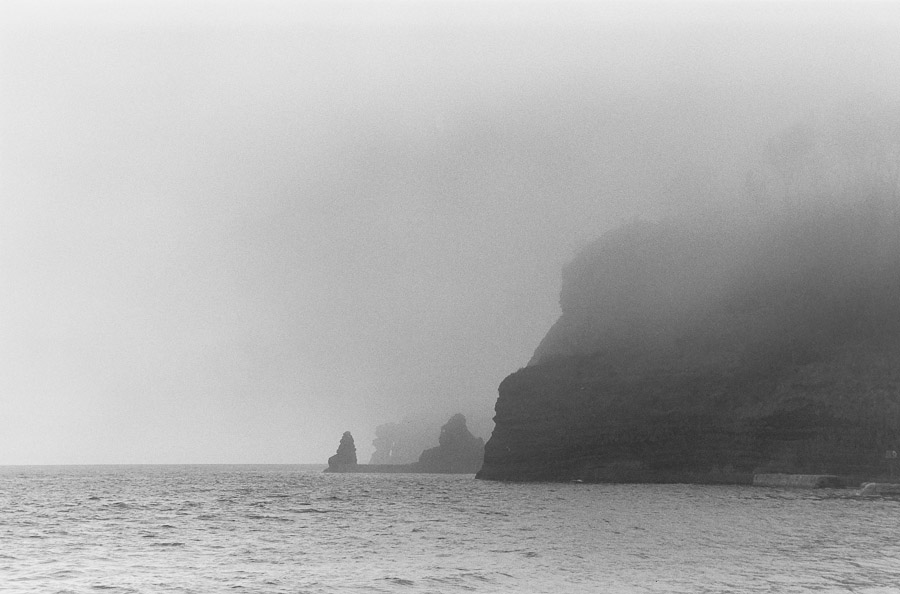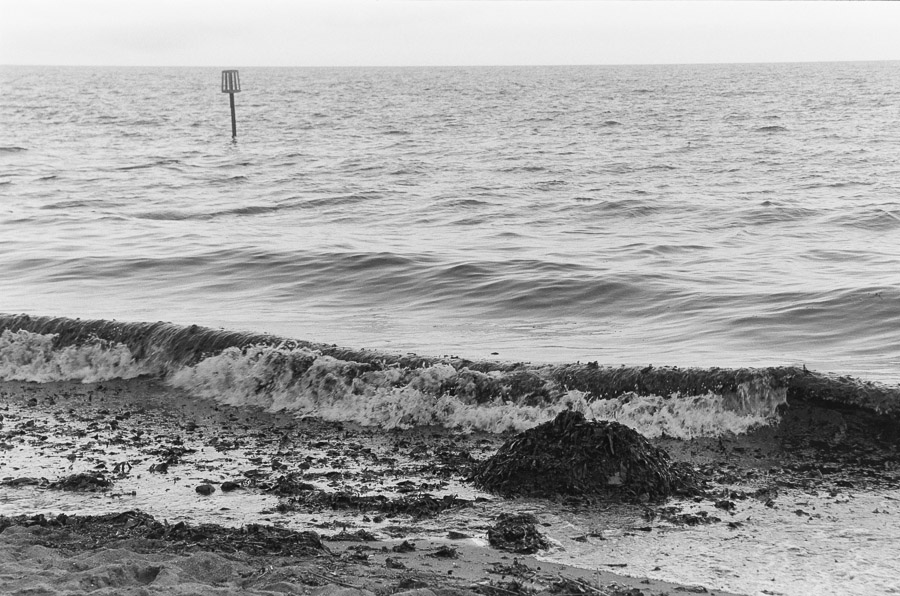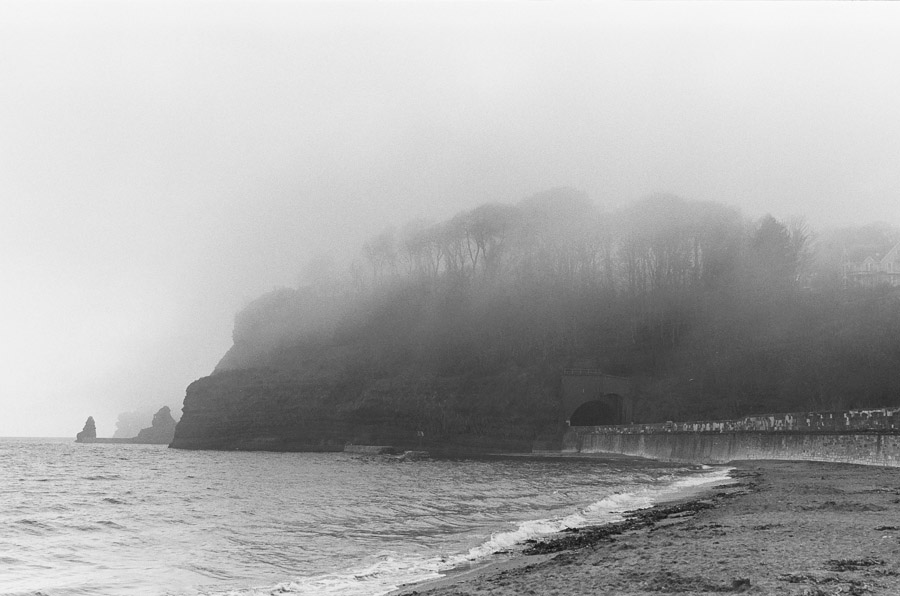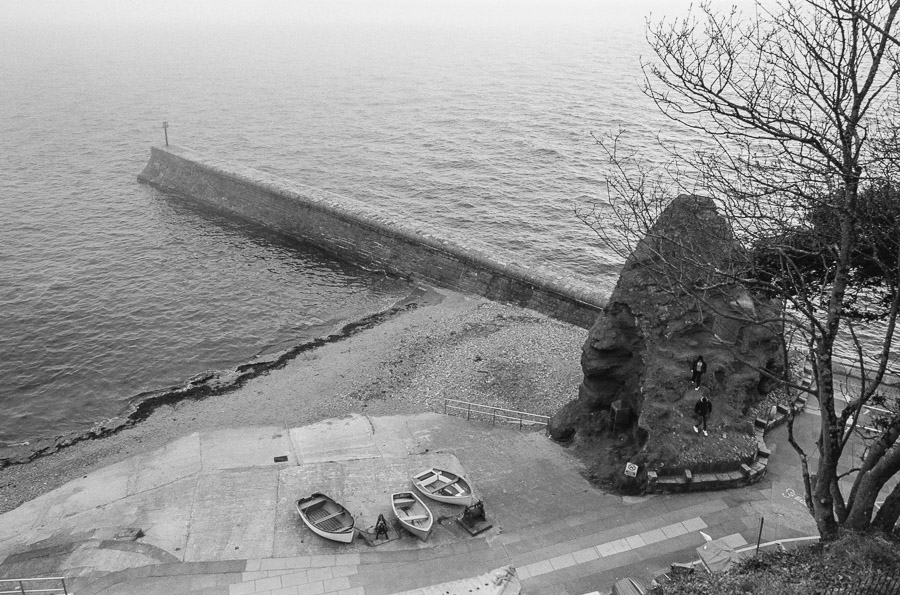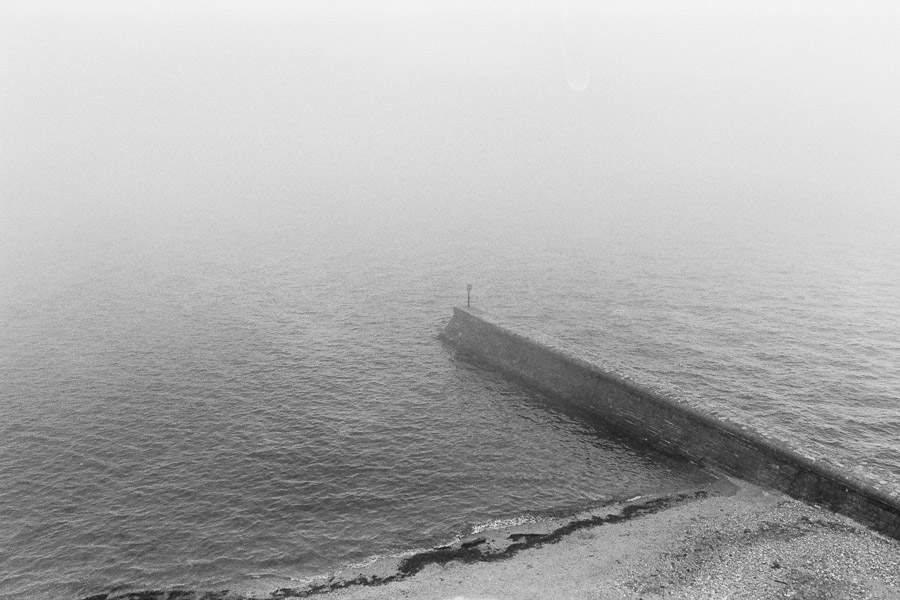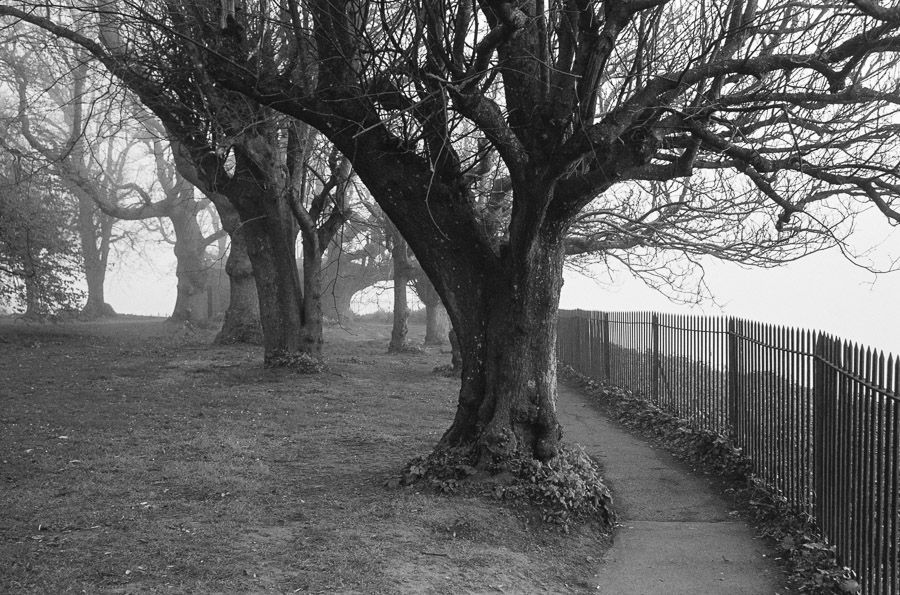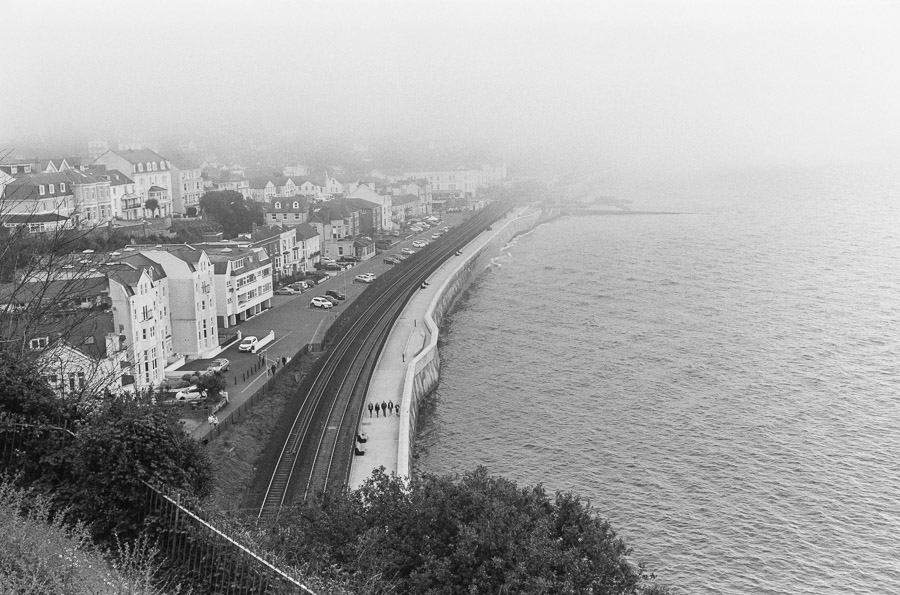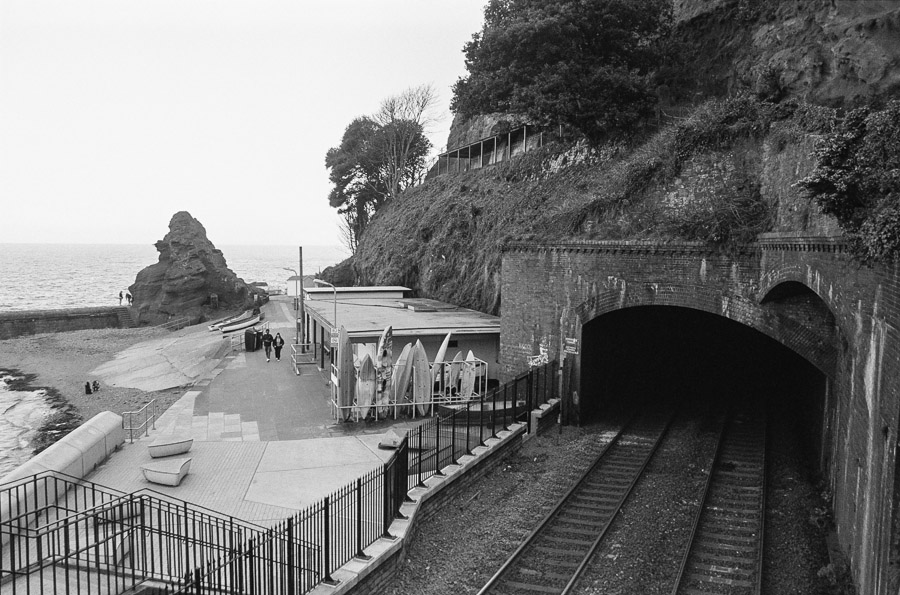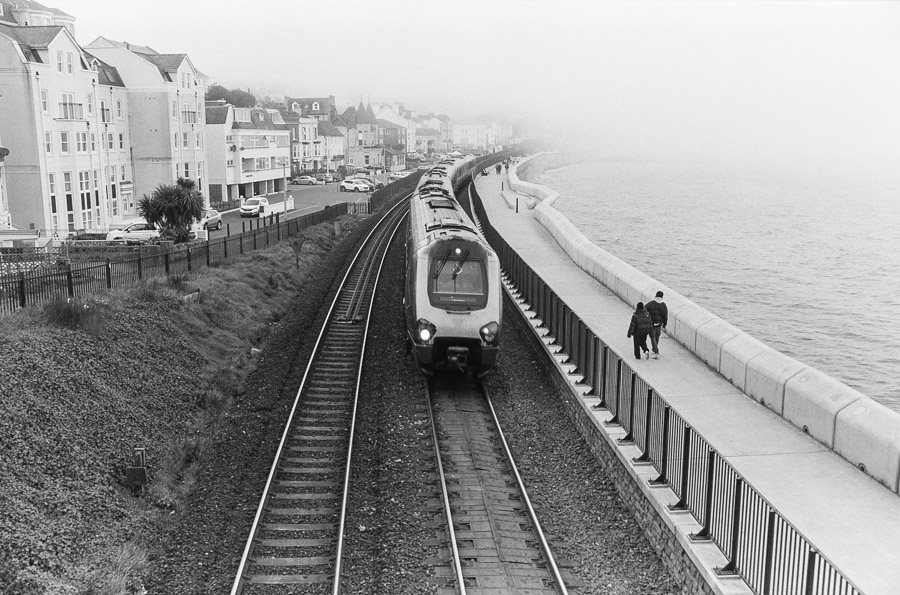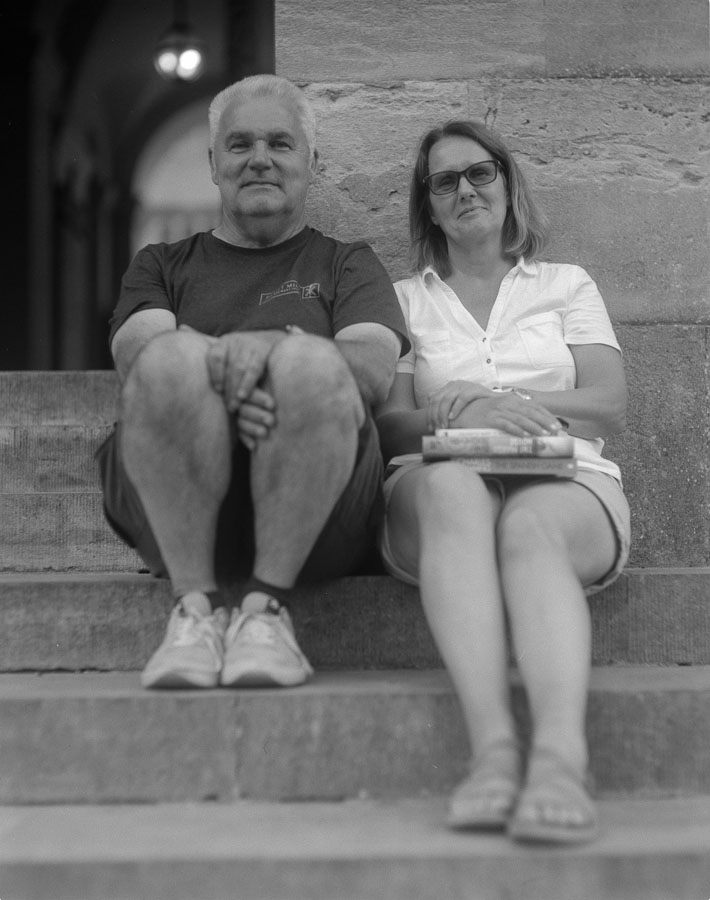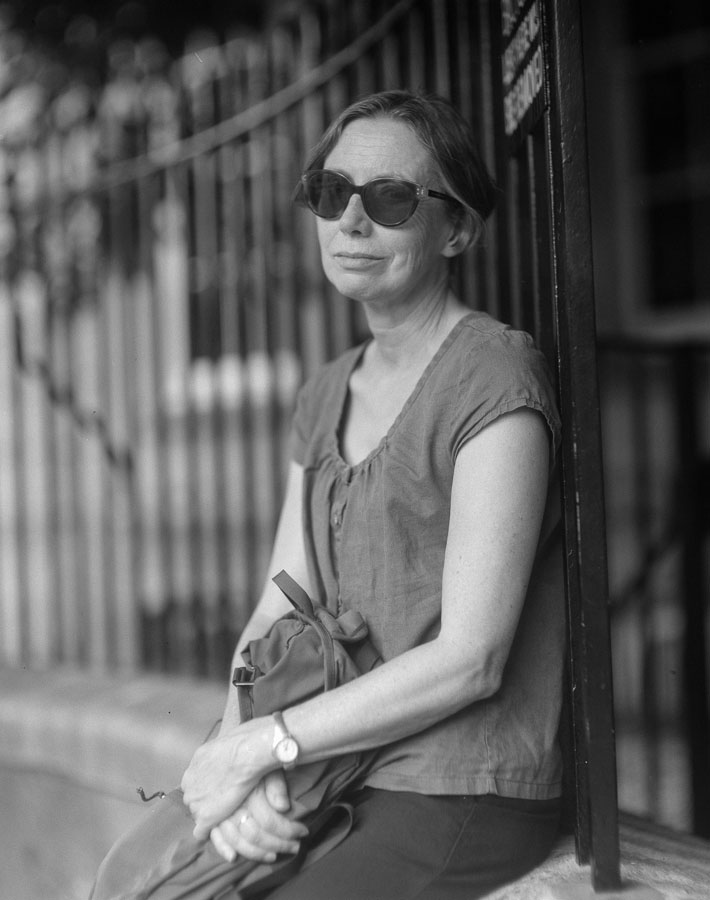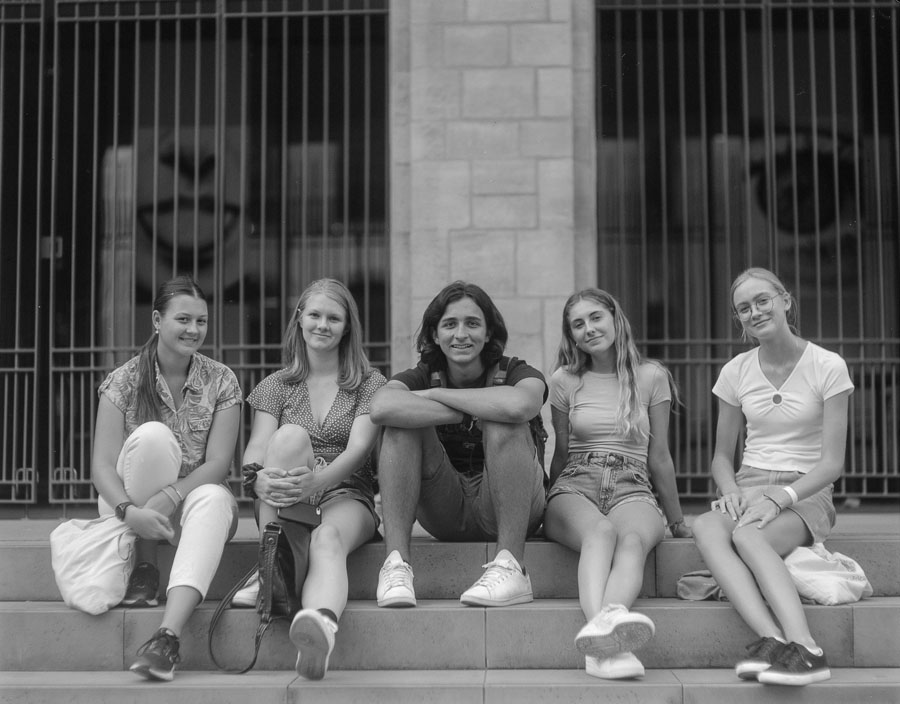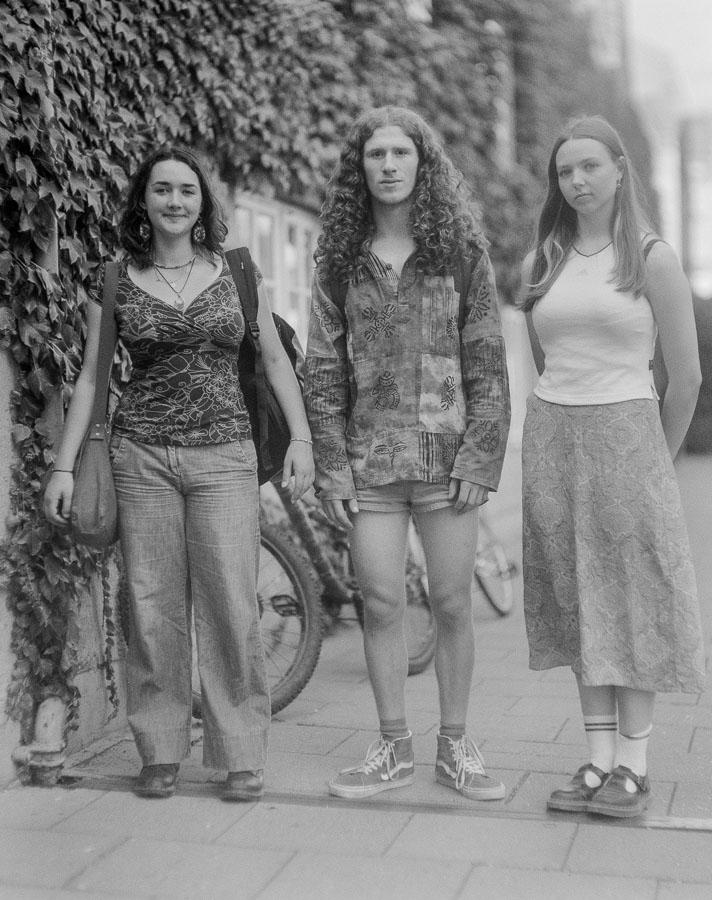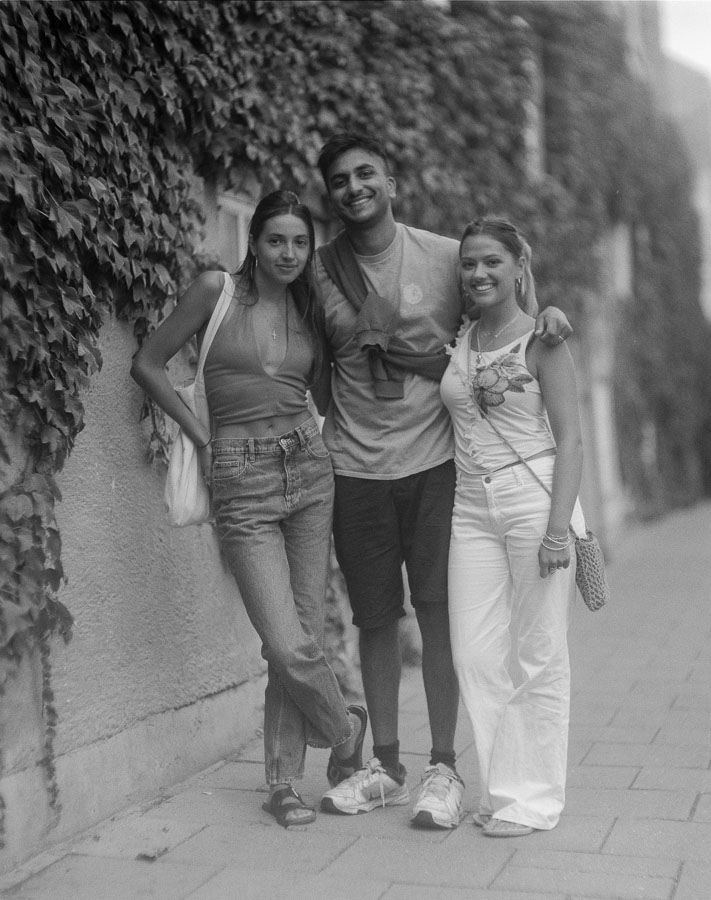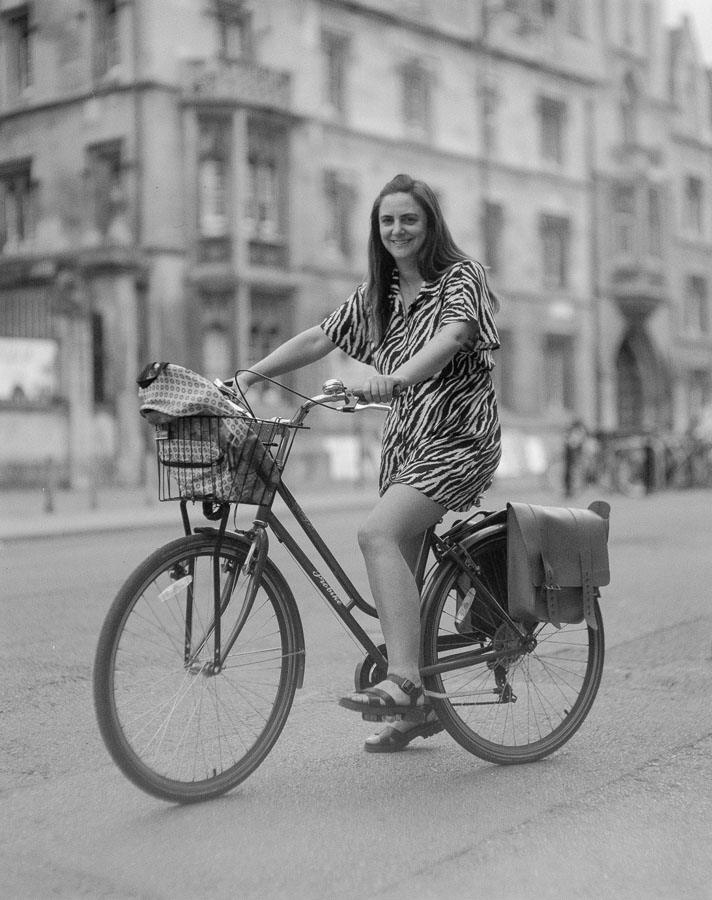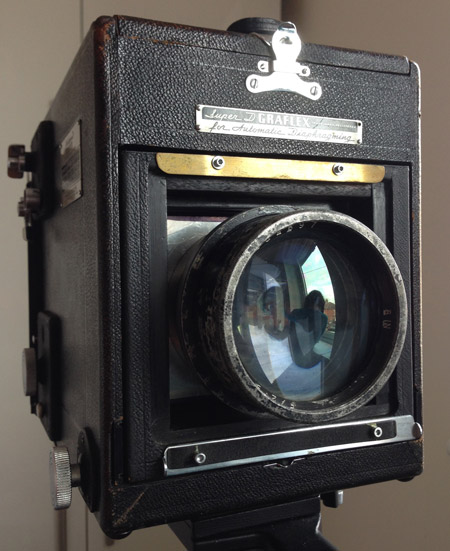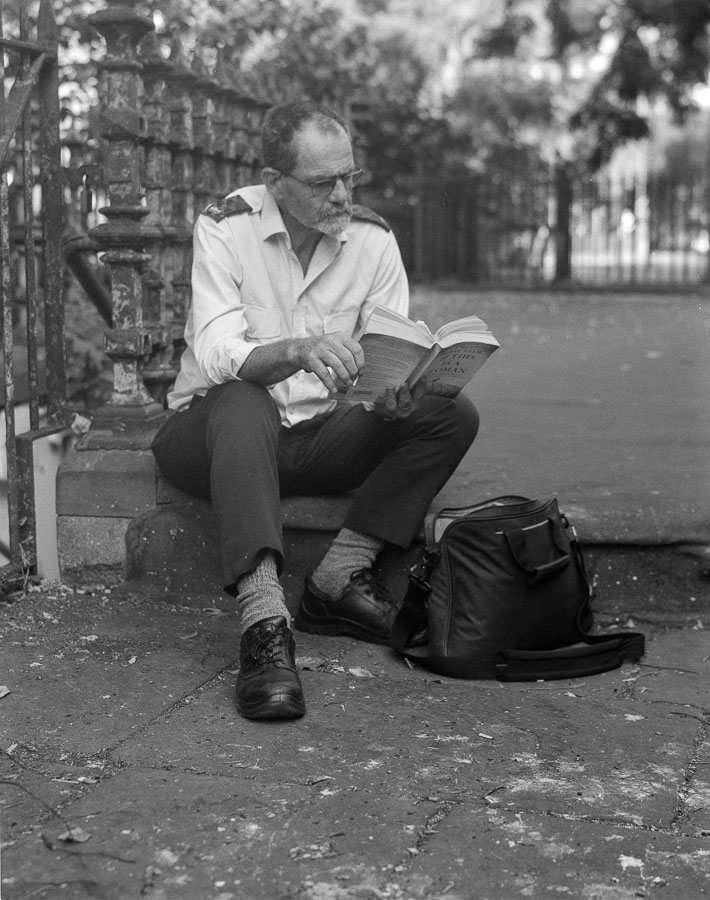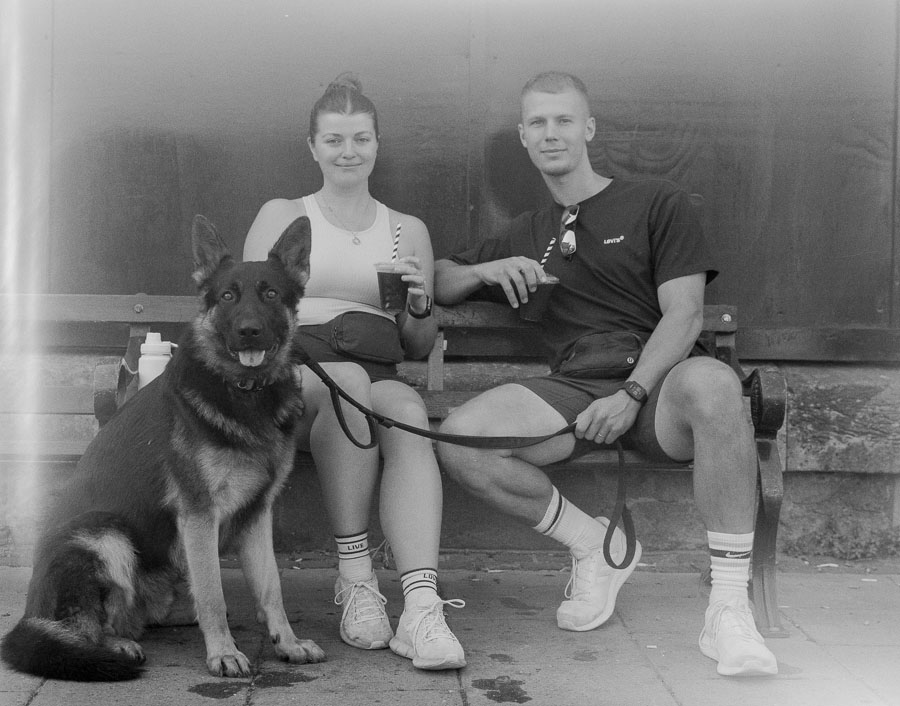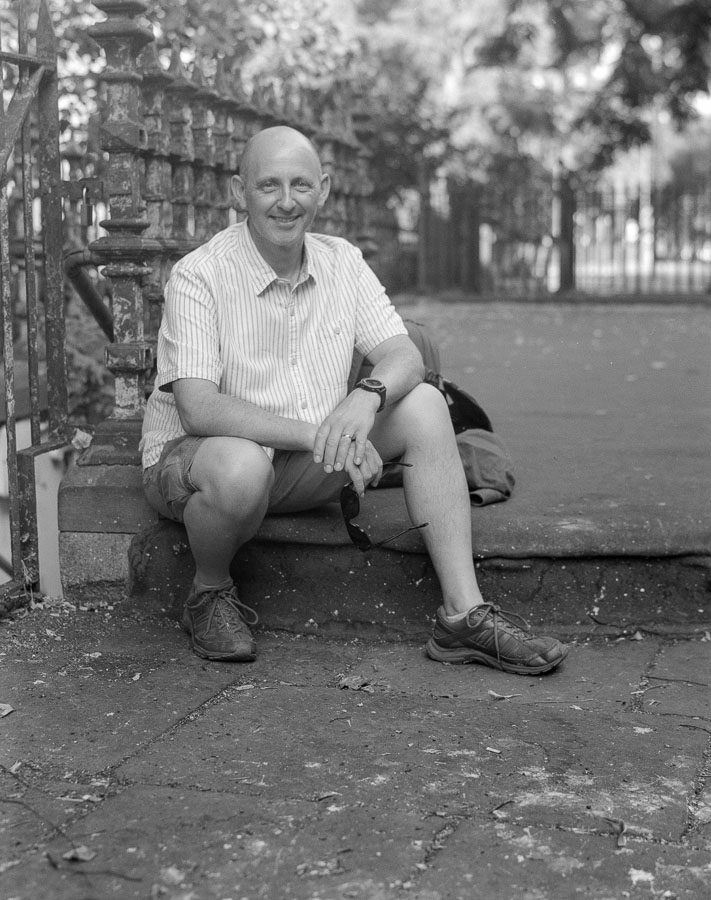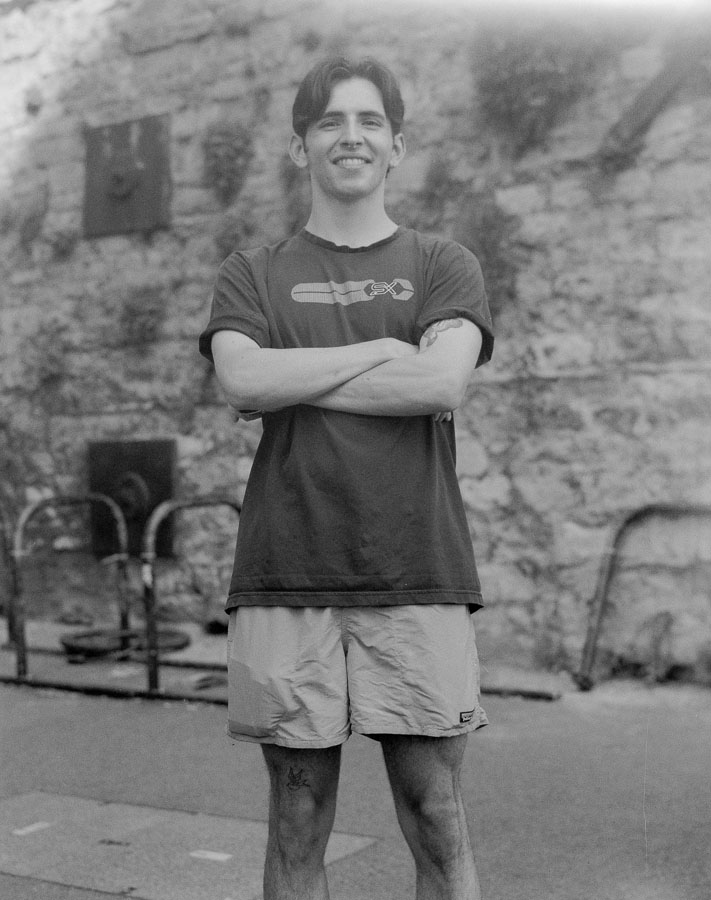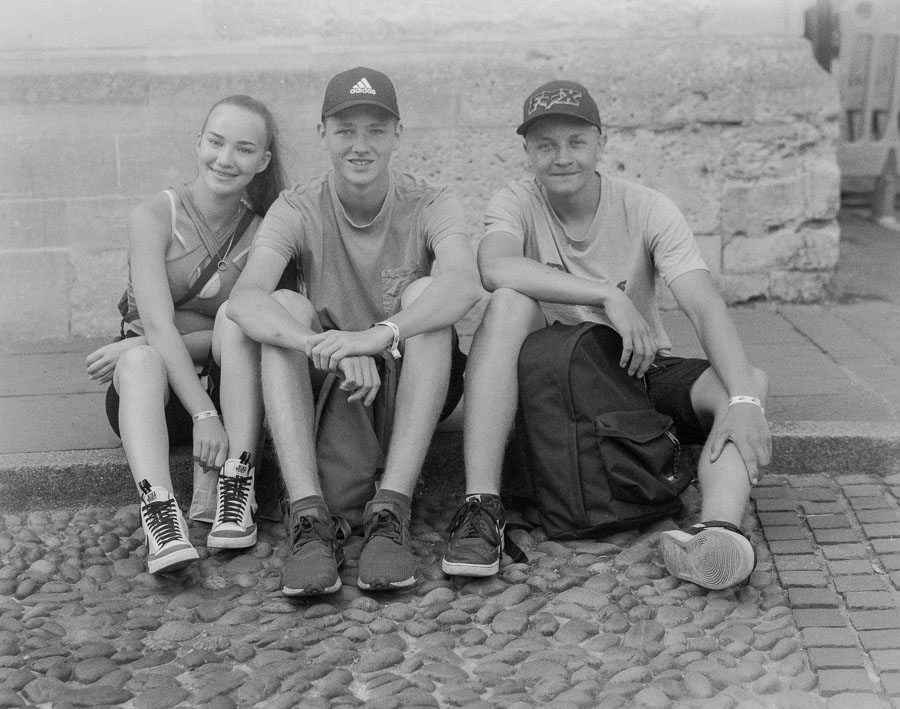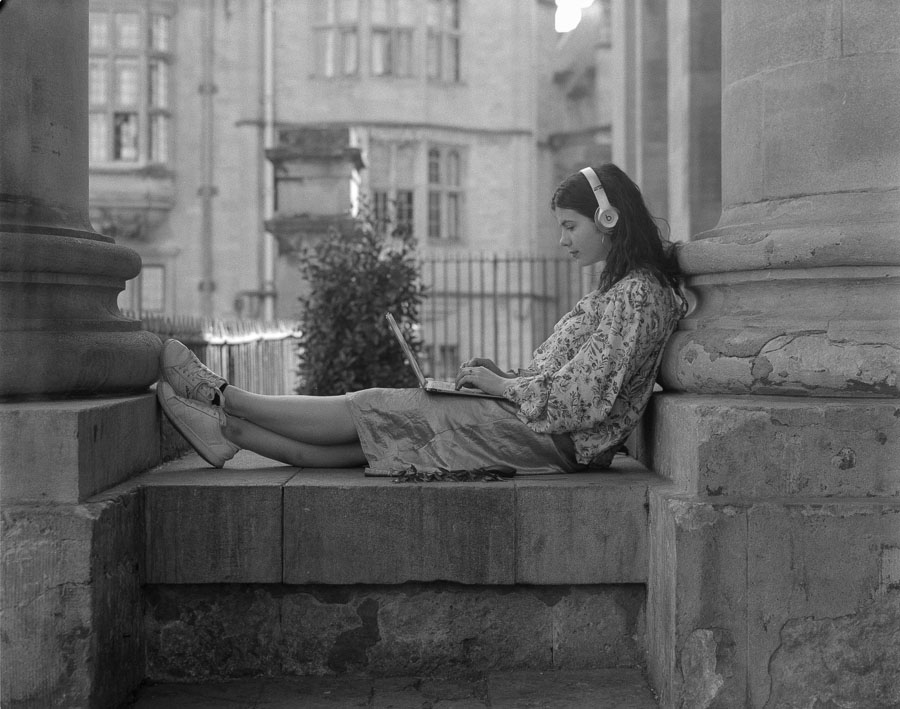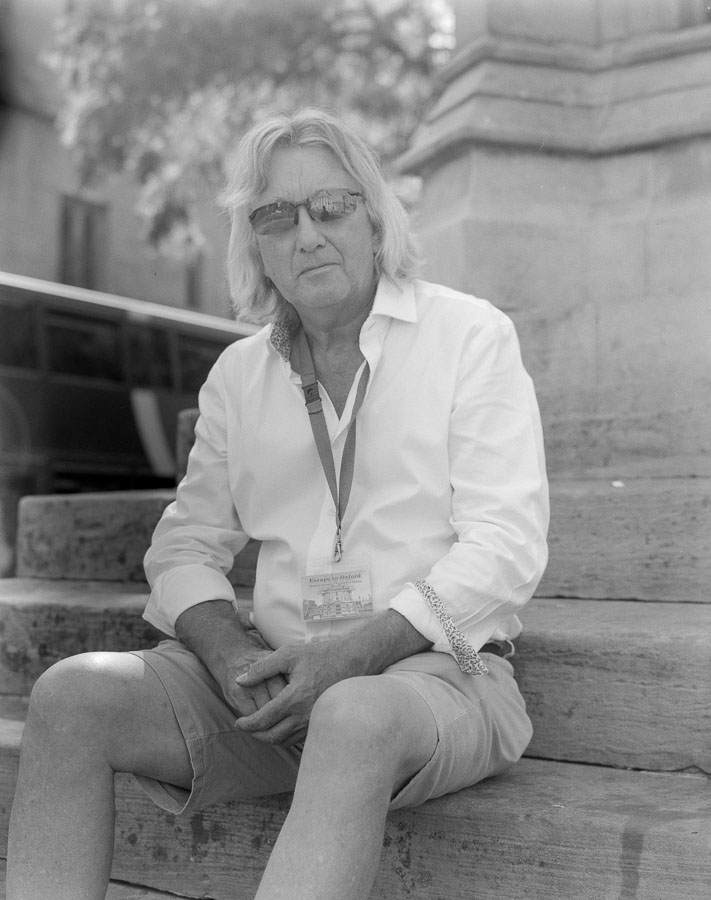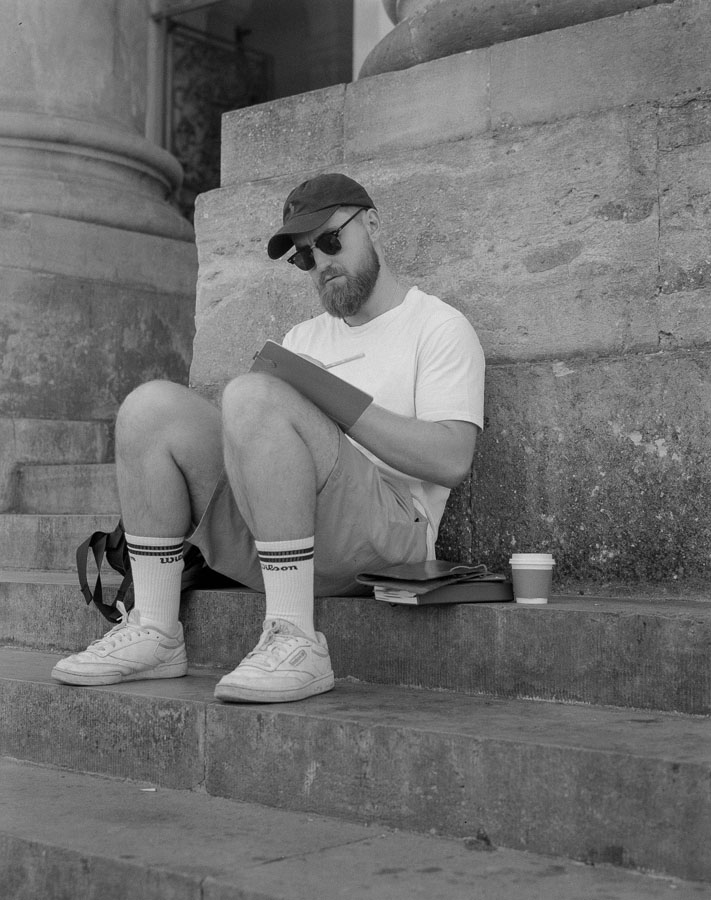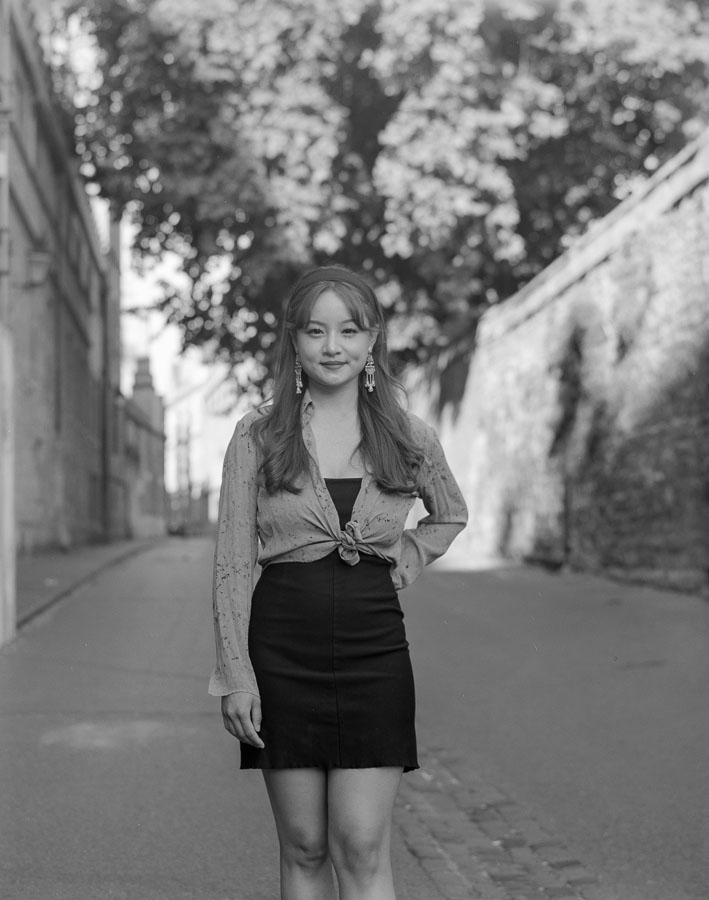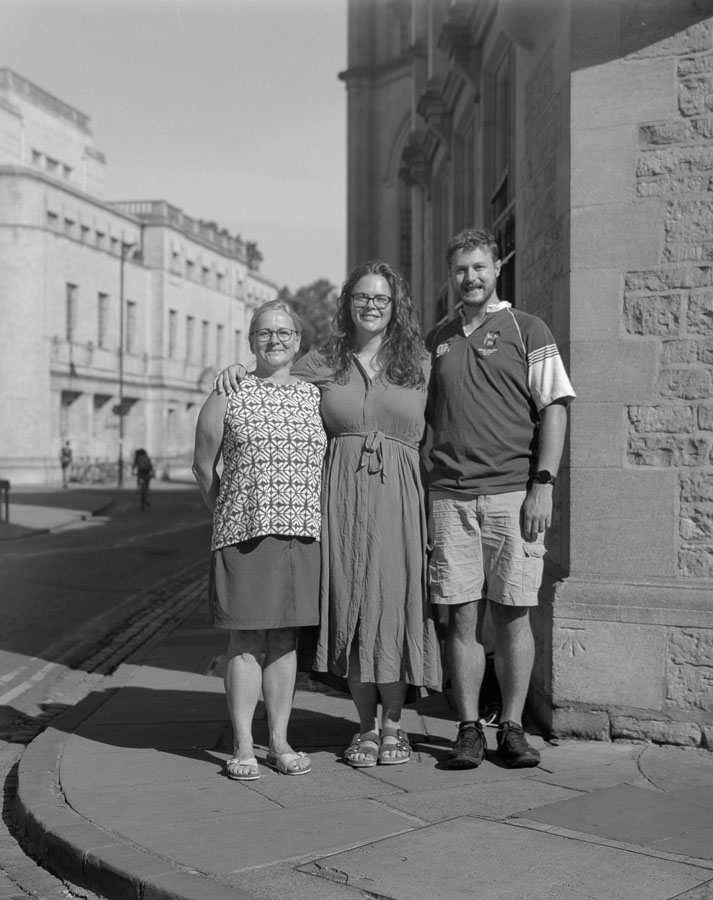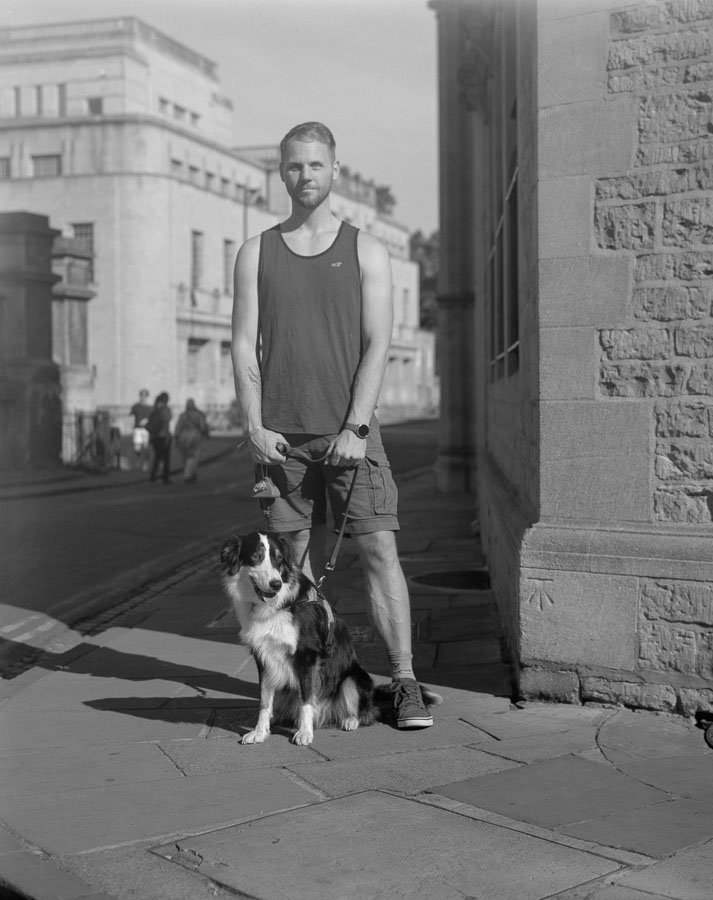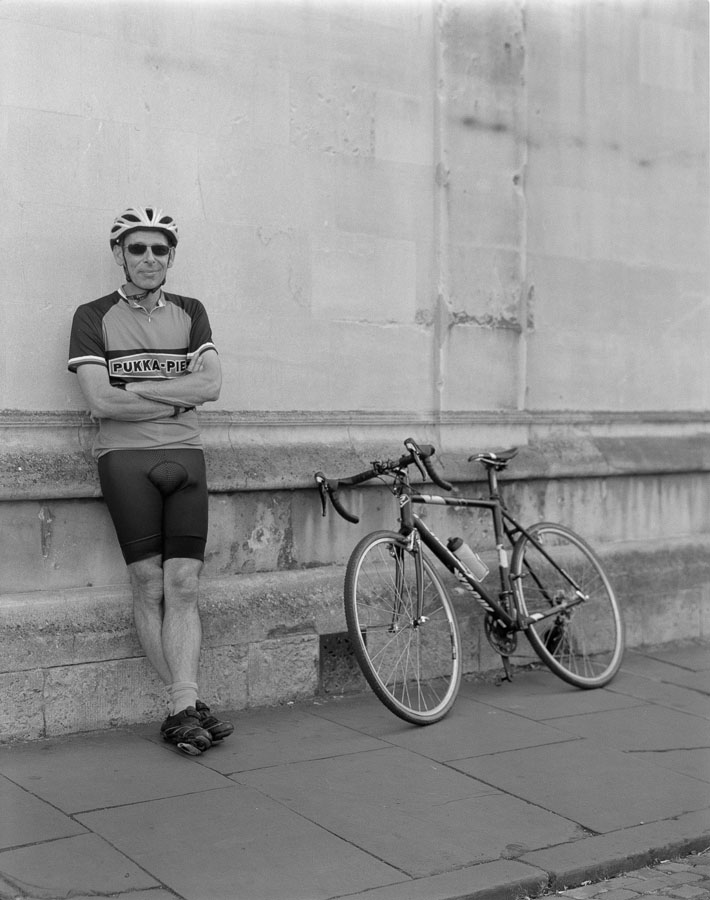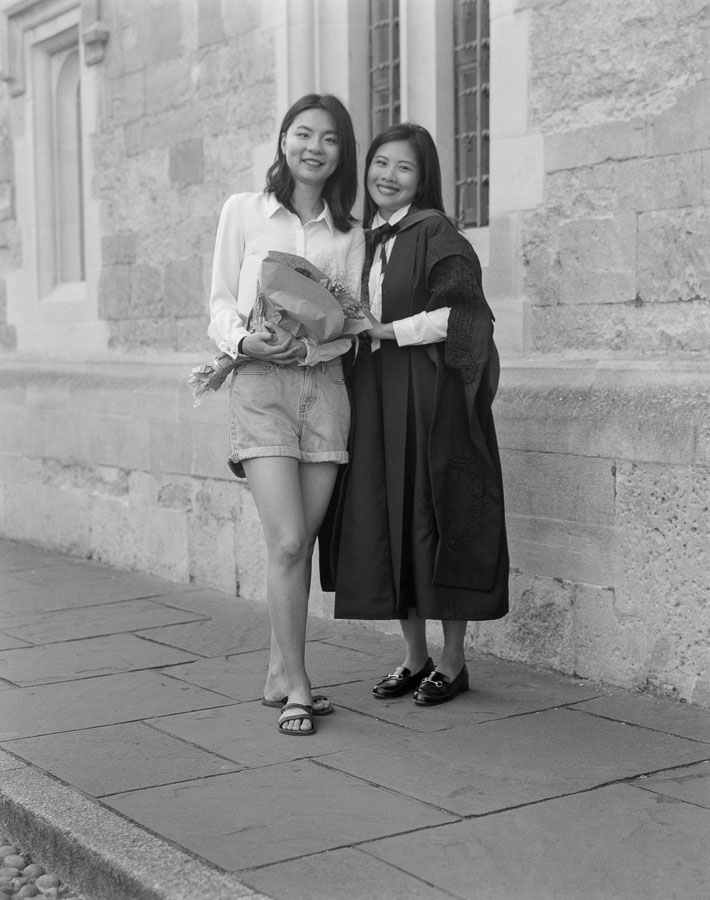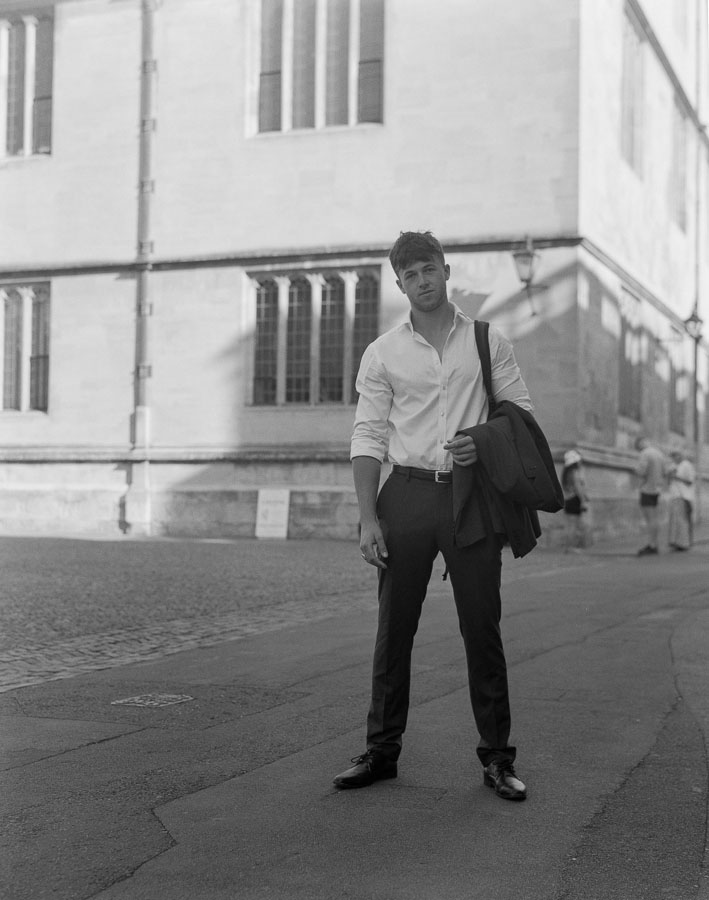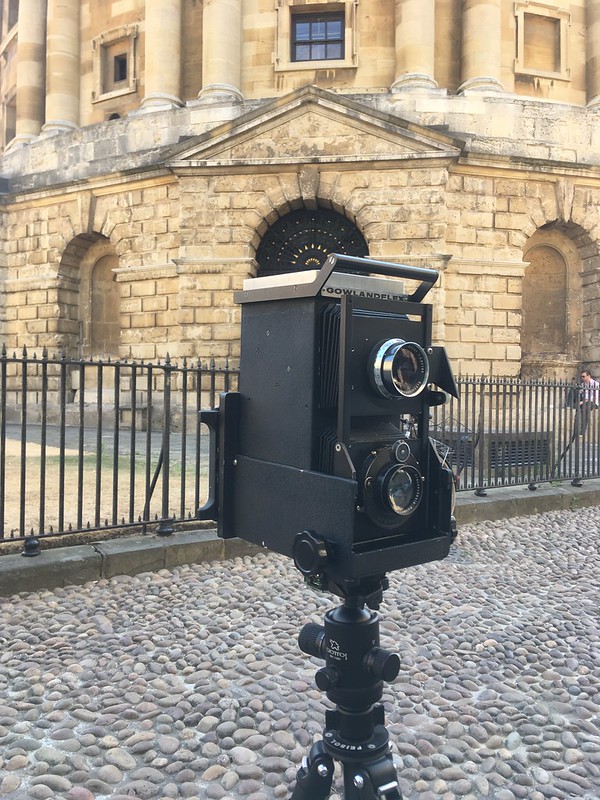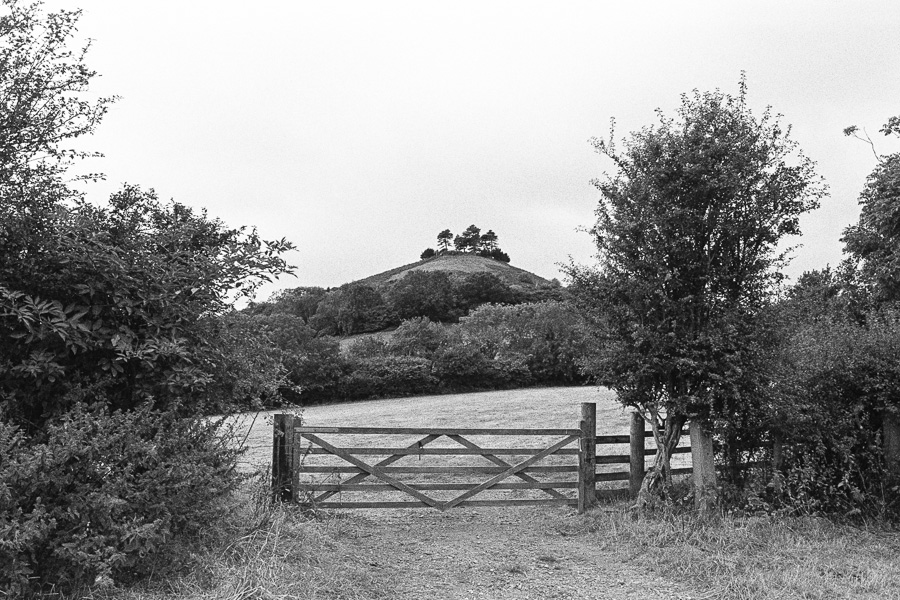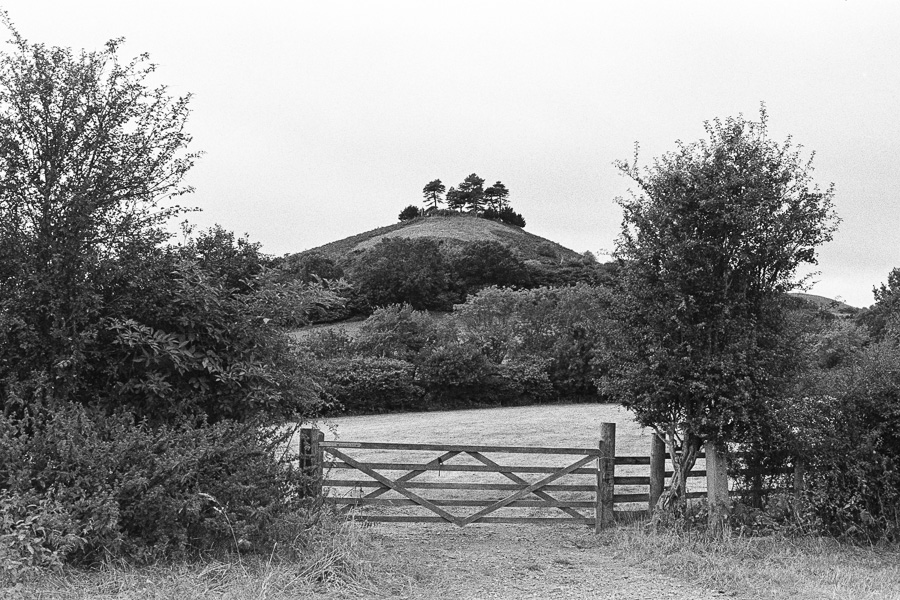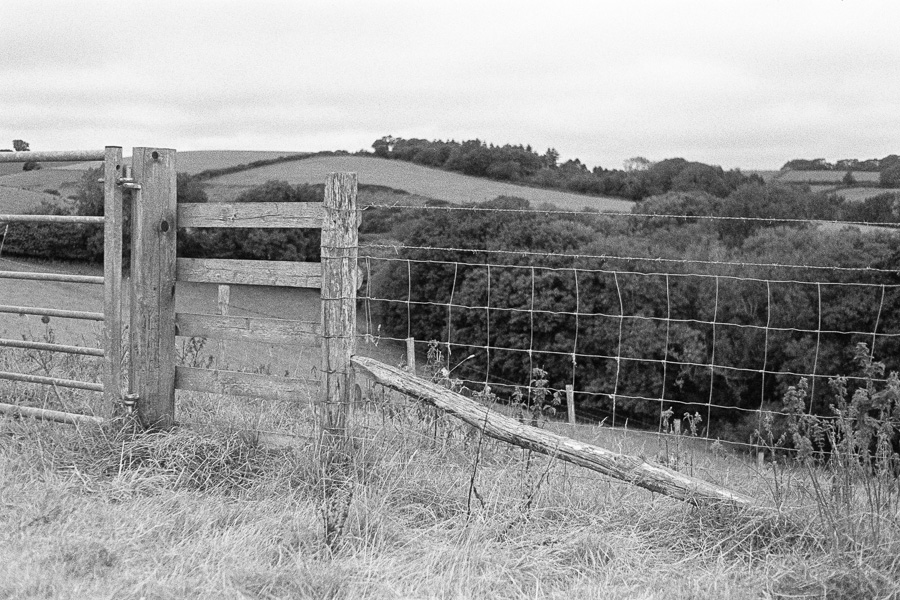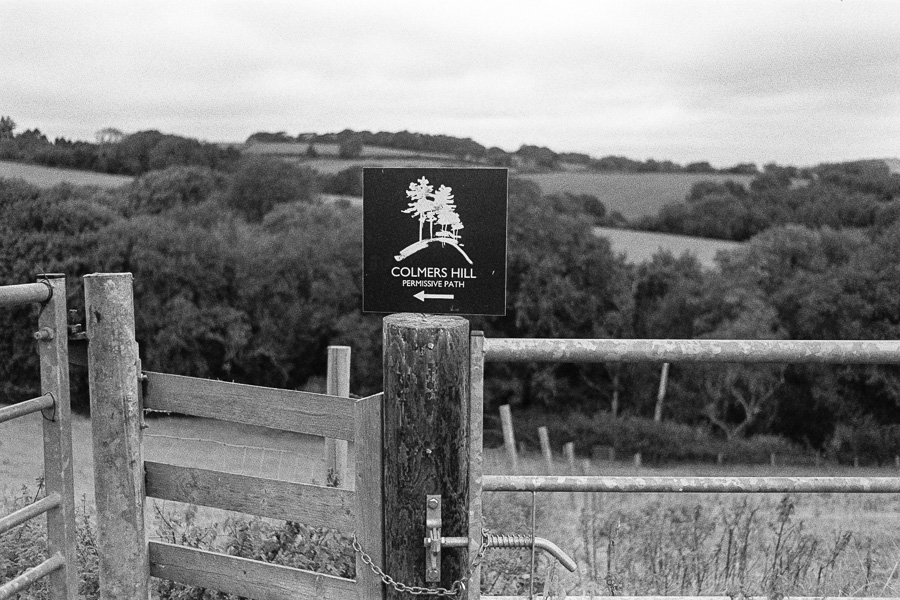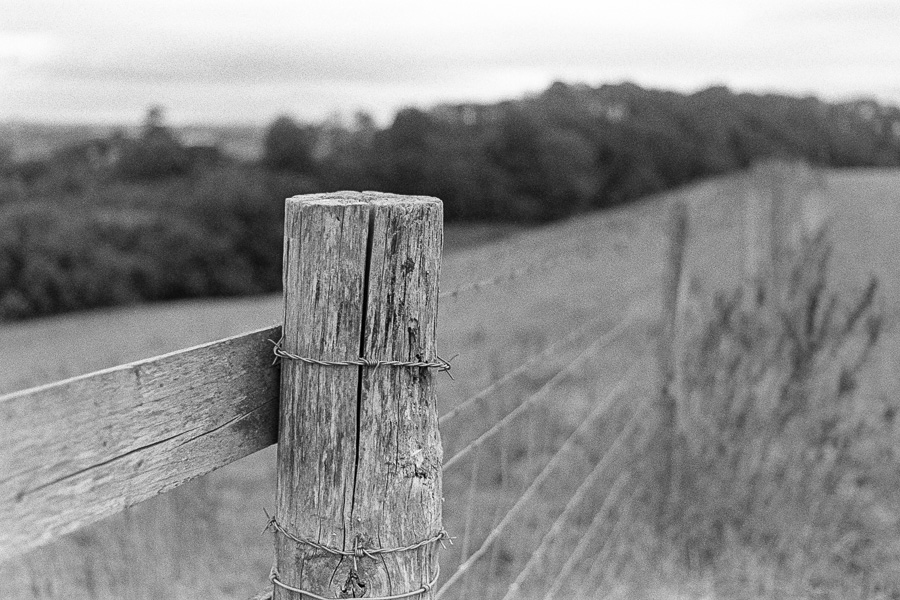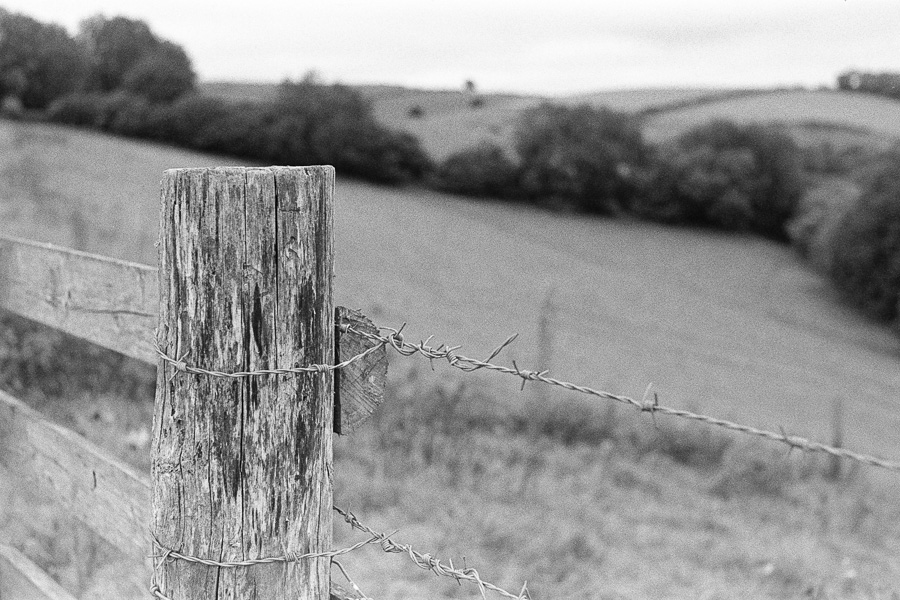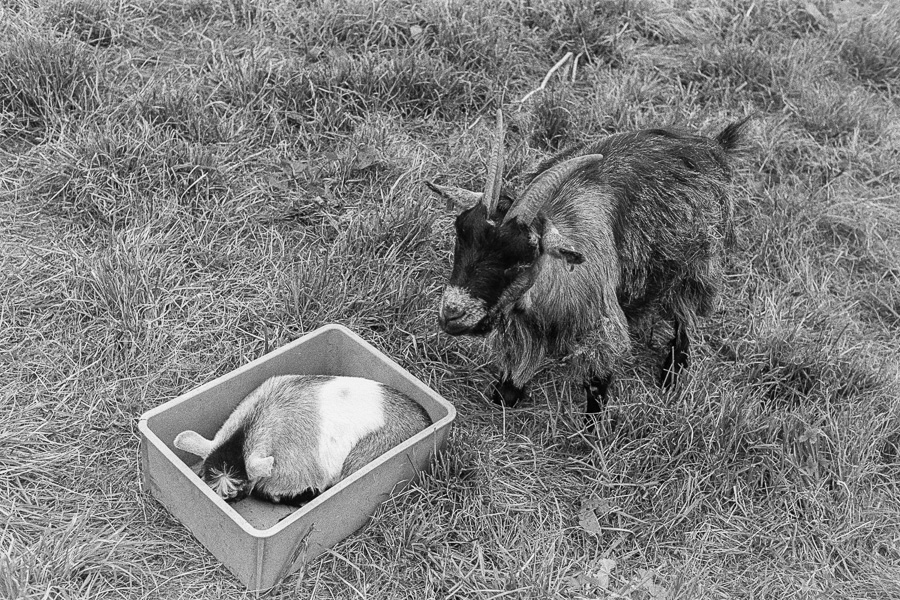ilford
...now browsing by tag
Tuesday, September 17th, 2024
Posted in Oxford, People, Portrait, Street portraits, Street style | No Responses »
Tags: 6x6, black&white, film, fp4, ilford, oxford, people, portraits, promicrol, rollei tele, rolleiflex, summer
Sunday, September 15th, 2024
Posted in Oxford, People, Portrait, Street portraits | 2 Responses »
Tags: 2024, fp4, glass plates, ilford, oxford, rodinal, ross reflex, zeiss
Monday, June 3rd, 2024
Posted in Oxford, People, Portrait | No Responses »
Tags: 6x9, aero ektar, black&white, ensign, film, HP5, ilford, oxford, people, portraits, promicrol
Sunday, May 5th, 2024
Here’s a quick large format portrait from last weekend when I was testing a 210mm f4.5 Docter Wetzlar lens. Thanks goes to these guys who were very obliging. I believe this was at f6.8.
[Tech info:] Chamonix 5×4, 210mm f4.5 Docter Wetzlar lens, Ilford FP4 film, ISO 80 (expired but stored frozen), developed in Promicrol 1+9 5 mins.
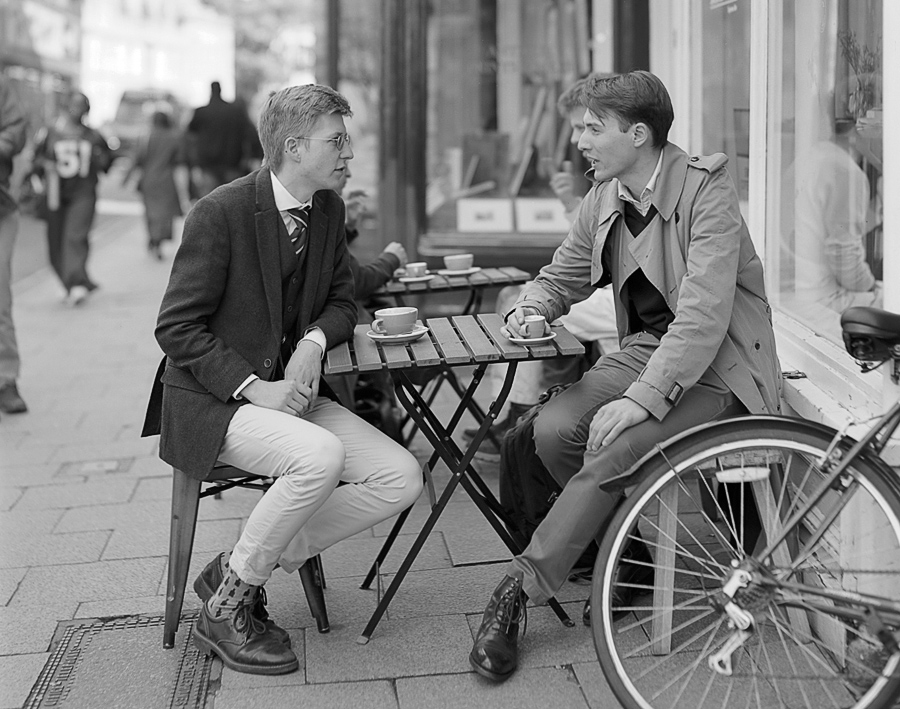
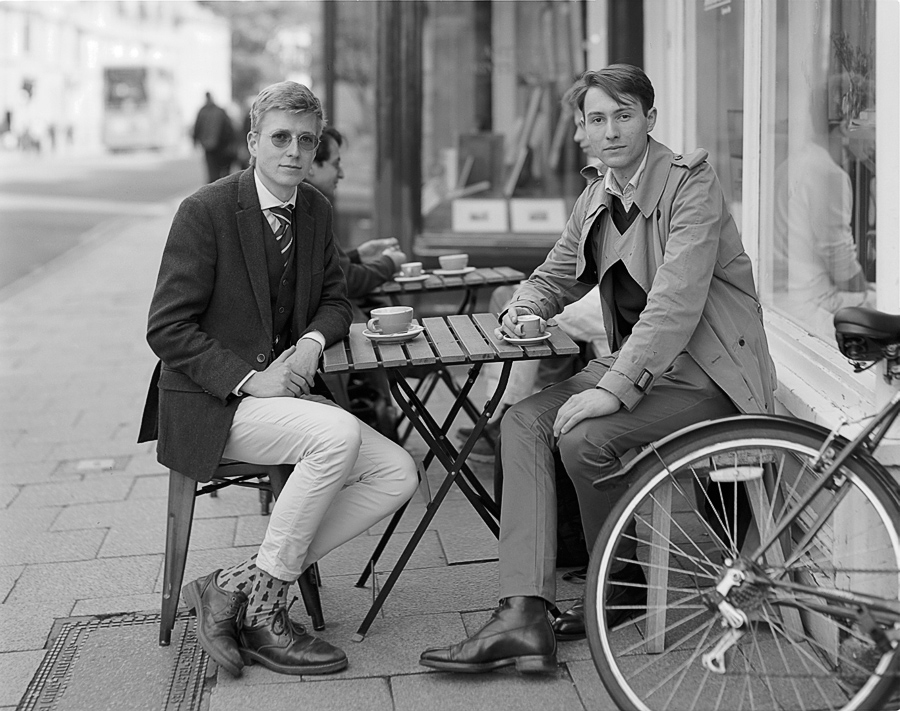
Posted in film, Oxford, People, Portrait | No Responses »
Tags: 210mm, 5x4, black&white, film, fp4, ilford, oxford, people, portraits, promicrol, students
Tuesday, October 10th, 2023
Posted in Equipment, film, Oxford, People, Portrait | No Responses »
Tags: 65mm, 6x6, black&white, c330, film, fp4, ilford, oxford, people, portraits, students, xt-3
Wednesday, September 20th, 2023
There was some flooding in Hinksey back in January and here are a few pictures from that time which I made during my lunch break. I had spotted the gravel mounds the previous week and was waiting for appropriate light and a dramatic sky to photograph them in.
[Tech info:] Pentax 645NII, 45-85mm lens, Ilford HP5 developed in Kodak HC110 1+31.
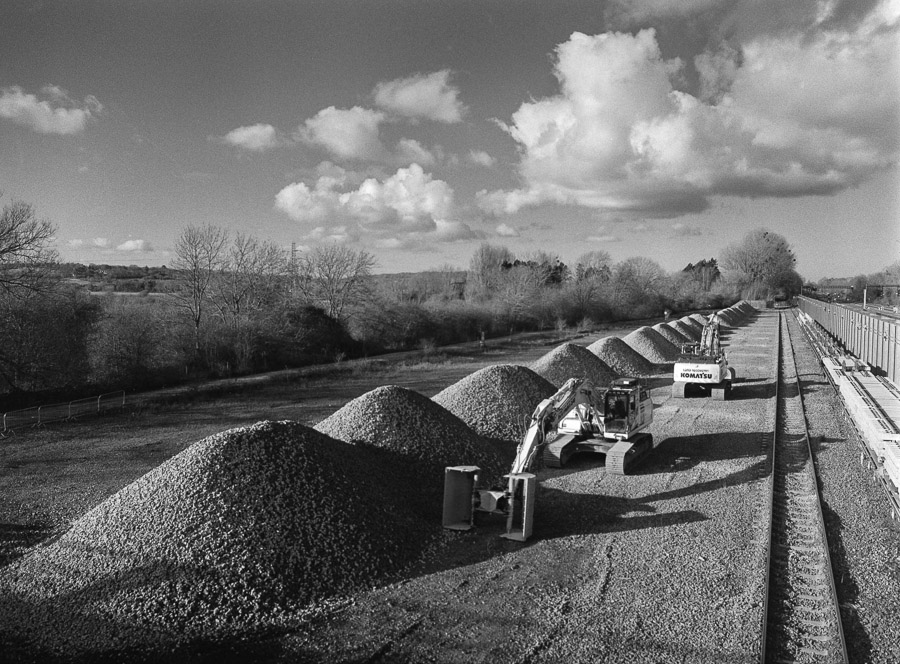
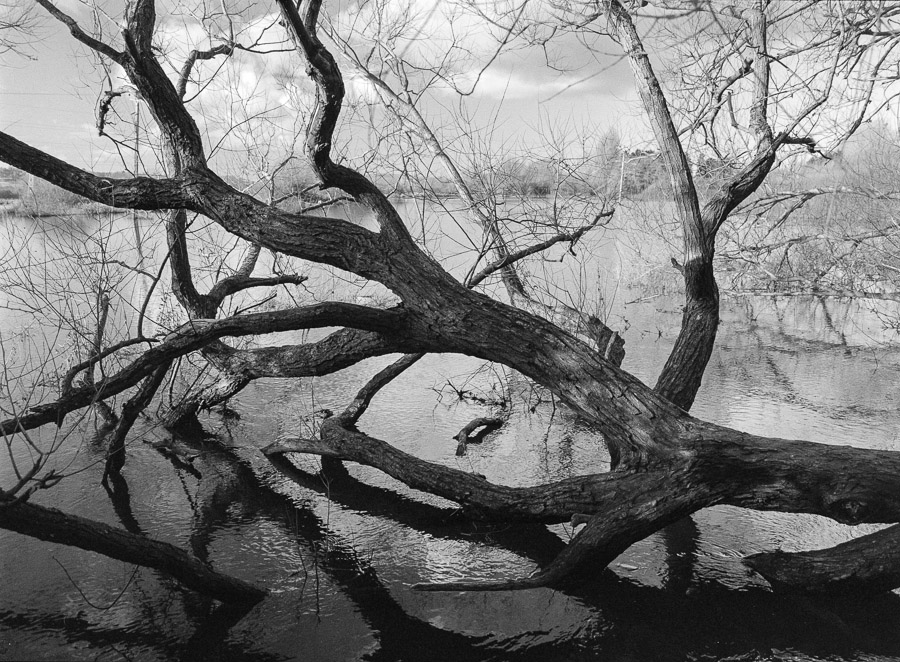
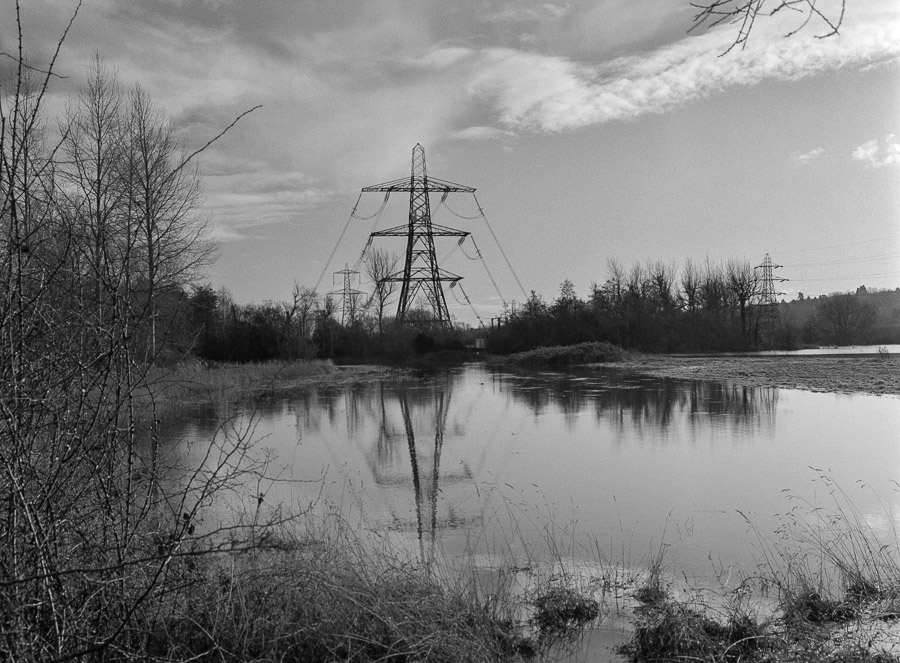
Posted in film, Oxford | No Responses »
Tags: 45-85, 645, black&white, film, flood, hc110, hinksey, HP5, ilford, oxford
Tuesday, September 19th, 2023
Some misty morning shots from April this year. I have photographed this location with various different cameras but this was the first time with a wider format. I feel 6×12 worked perfectly for these shots.
[Tech info]: Wista 5×4, 90mm Schneider lens, Ilford FP4+ developed in Adox XT-3 stock.
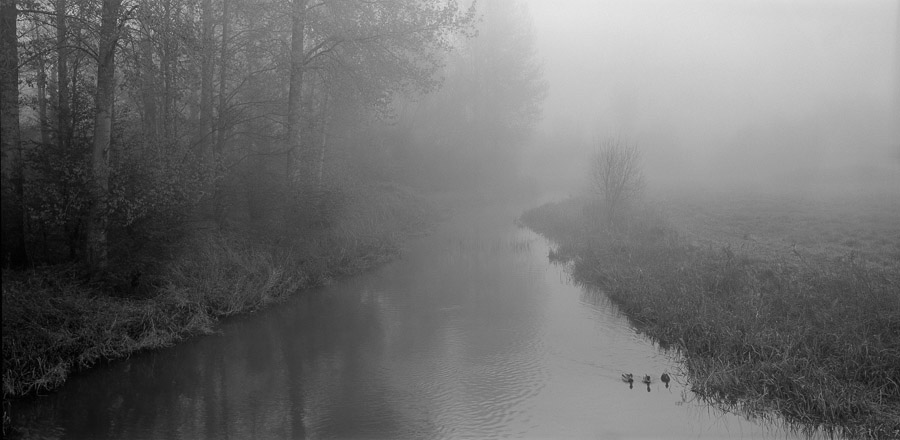
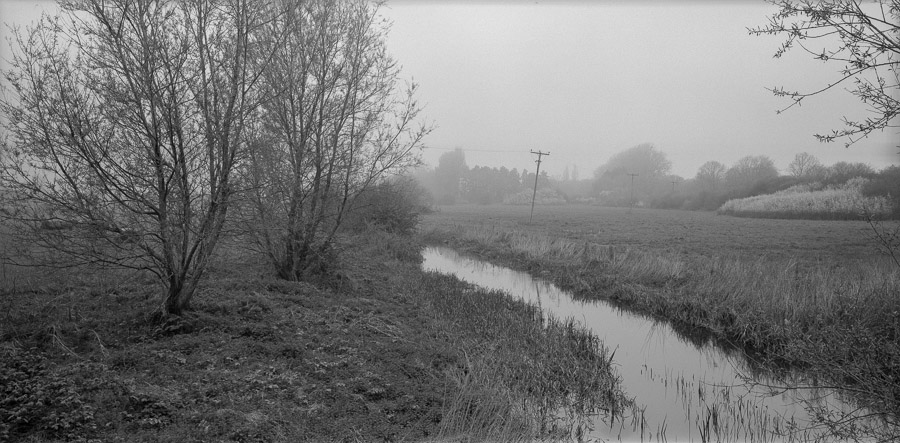
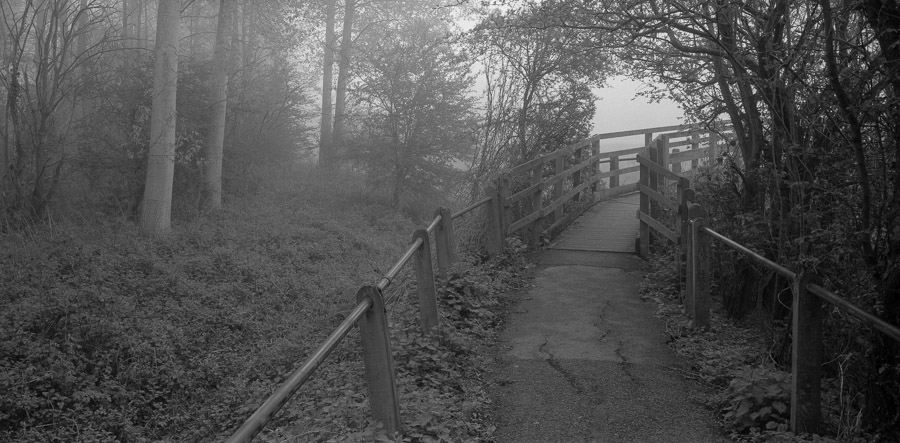
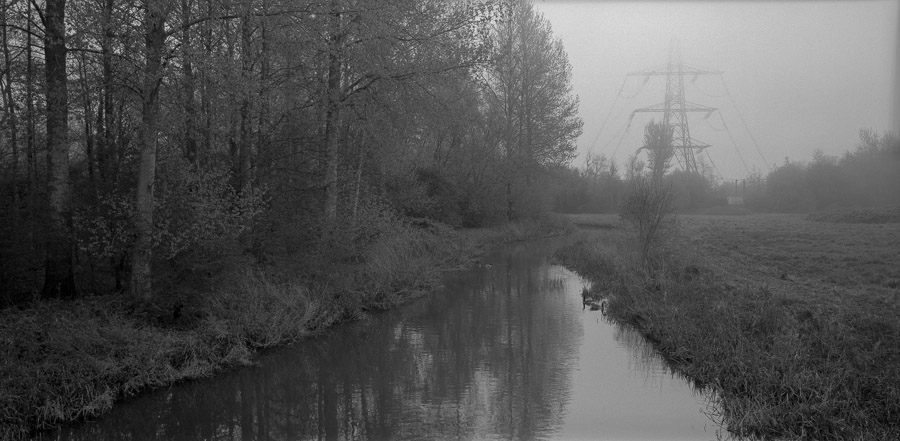
Posted in film, Oxford | No Responses »
Tags: 5x4, adox, black&white, film, fp4, ilford, mist, oxford, wista, xt-3
Monday, September 18th, 2023
Posted in Equipment, film, Oxford, People, Portrait | No Responses »
Tags: 125mm, 6x6, adox, black&white, film, fp4, HP5, ilford, leitz, oxford, rolleiflex, SL66, xt-3
Thursday, December 1st, 2022
Posted in film, Travel | 3 Responses »
Tags: 28-75, 35mm, b&w, ddx, delta 100, devon, fe2, film, ilford, nikon
Monday, August 22nd, 2022
Posted in film, Oxford, People, Portrait, Street portraits | No Responses »
Tags: 5x4, graflex, hc110, HP5, ilford, oxford, portrait, super d
Sunday, August 21st, 2022
Posted in film, Oxford, People, Portrait, Street portraits | No Responses »
Tags: 5x4, b&w, film, gowlandflex, hc110, HP5, ilford, oxford, portraits
Saturday, November 6th, 2021
Posted in film, Travel | 2 Responses »
Tags: 35mm, black&white, dorset, HP5, ilford, pakon, Pentax mx, promicrol, symmondsbury
